Program Schedule
8:30 a.m.
Location: UABC Rectoria and Facultad de Enfermeria, Mexicali BC
9:00 - 9:30 a.m.
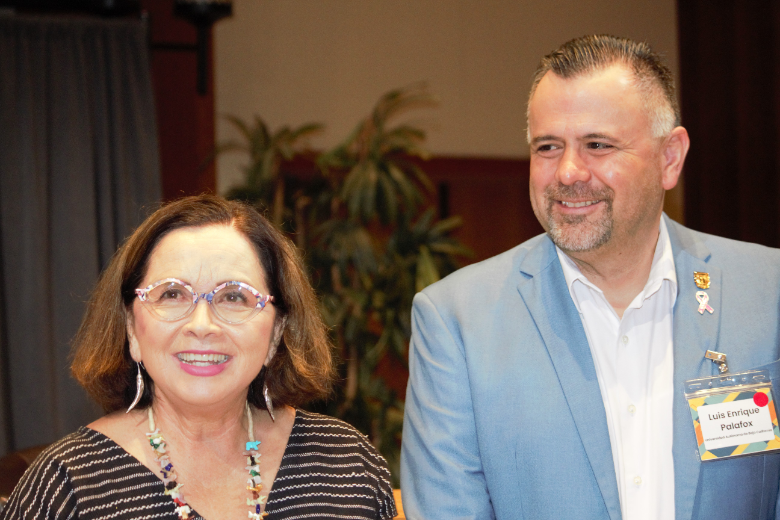 Open the image full screen.
Open the image full screen.
Location: Rectoria en la Explanade, UABC Mexicali
During the dynamic opening ceremony you will hear from SDSU and UABC presidents and binational leaders.
Welcome Remarks:
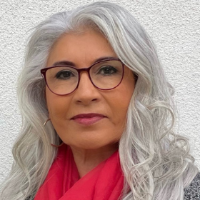
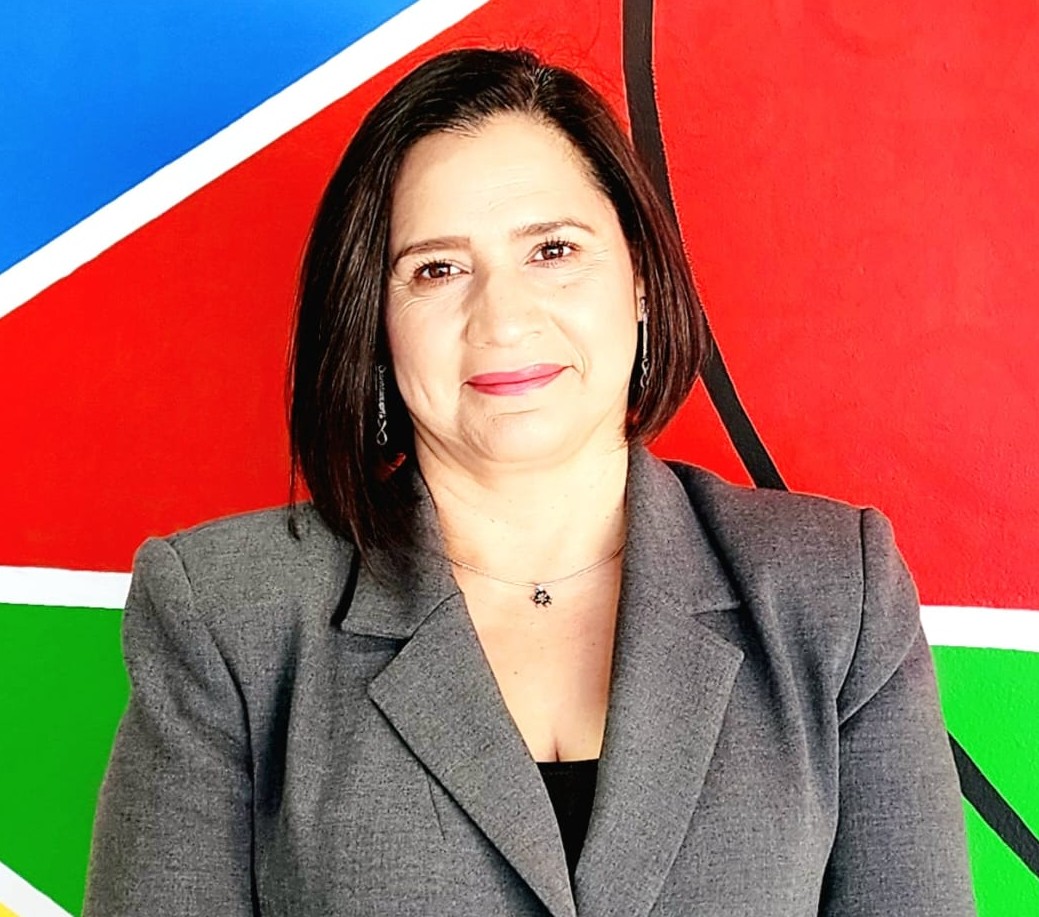
Speakers:
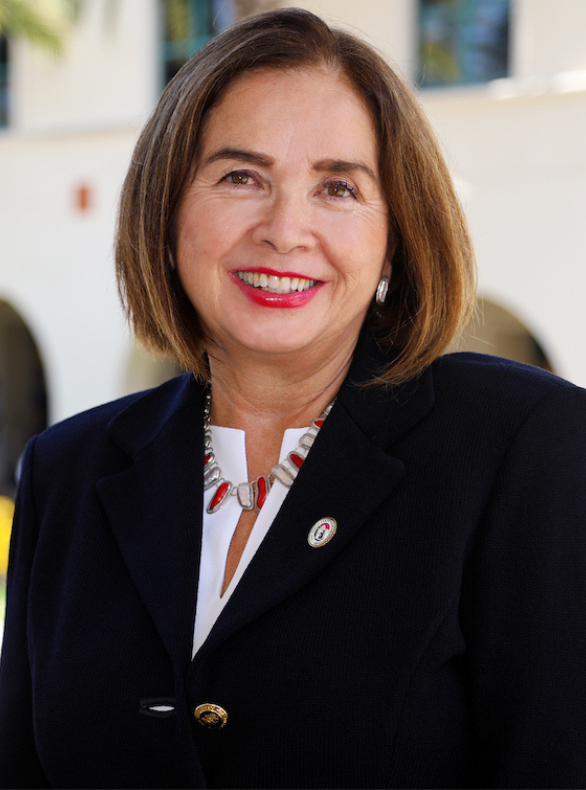
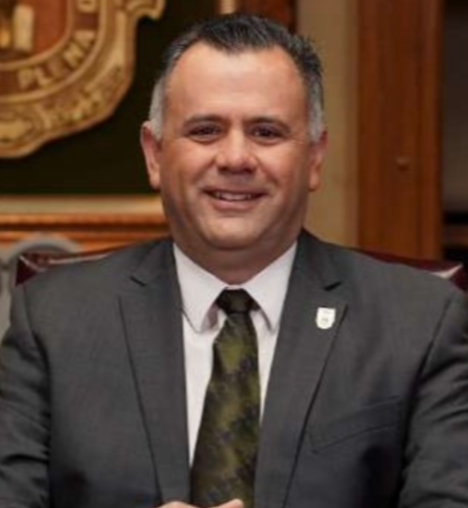
9:30 - 10:15 a.m.
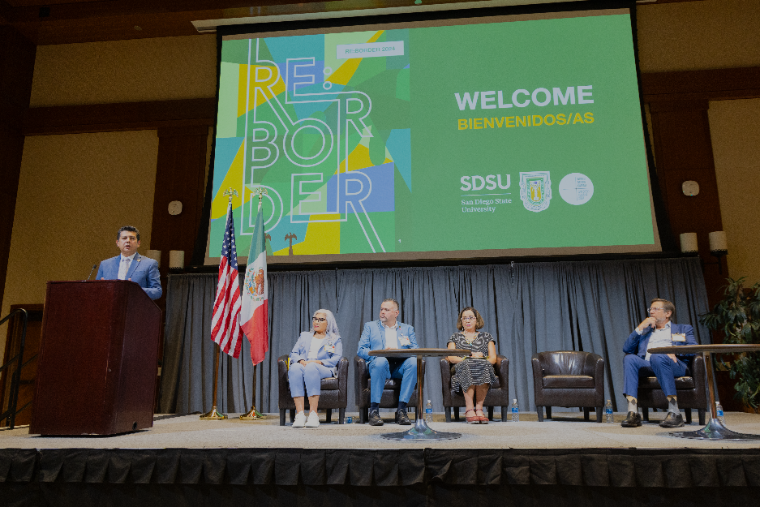 Open the image full screen.
Open the image full screen.
Building Bridges: Challenges, Opportunities and Innovation in the borderlands
Construyendo puentes: desafíos, oportunidades y innovación en las zonas fronterizas
Location: Rectoria en la Explanade, UABC Mexicali
Description: This opening plenary will focus on bridging binational ties of diplomacy, collaboration, and partnership centered on building sustainable communities. Panelists will discuss how immigration, economic mobility, binational education integration, and legal rights impact the well-being of our borderland communities.
Descripción: Esta sesión plenaria inaugural se centrará en fortalecer los lazos binacionales de diplomacia, colaboración y asociación, con el objetivo de construir comunidades sostenibles. Los panelistas debatirán cómo la inmigración, la movilidad económica, la integración educativa binacional y los derechos legales impactan el bienestar de nuestras comunidades fronterizas.
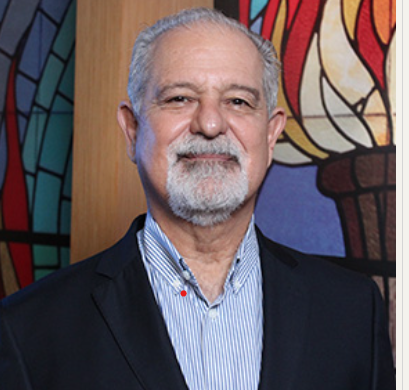
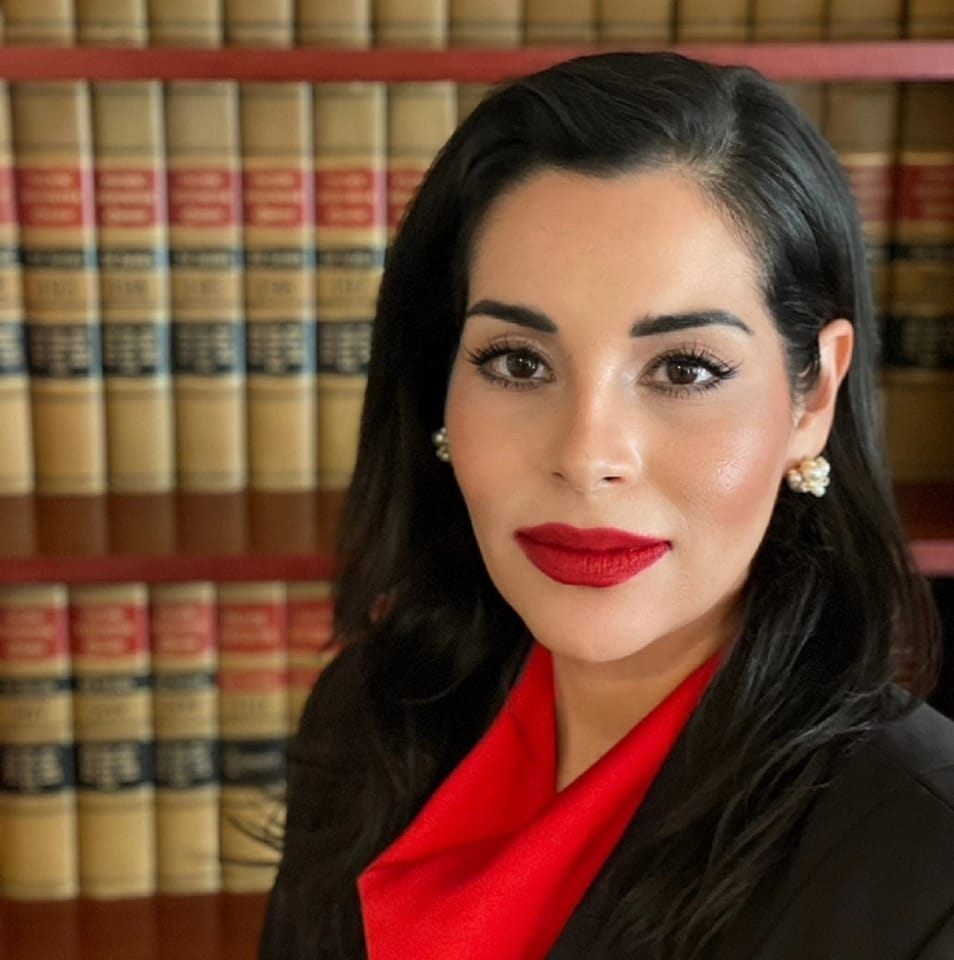
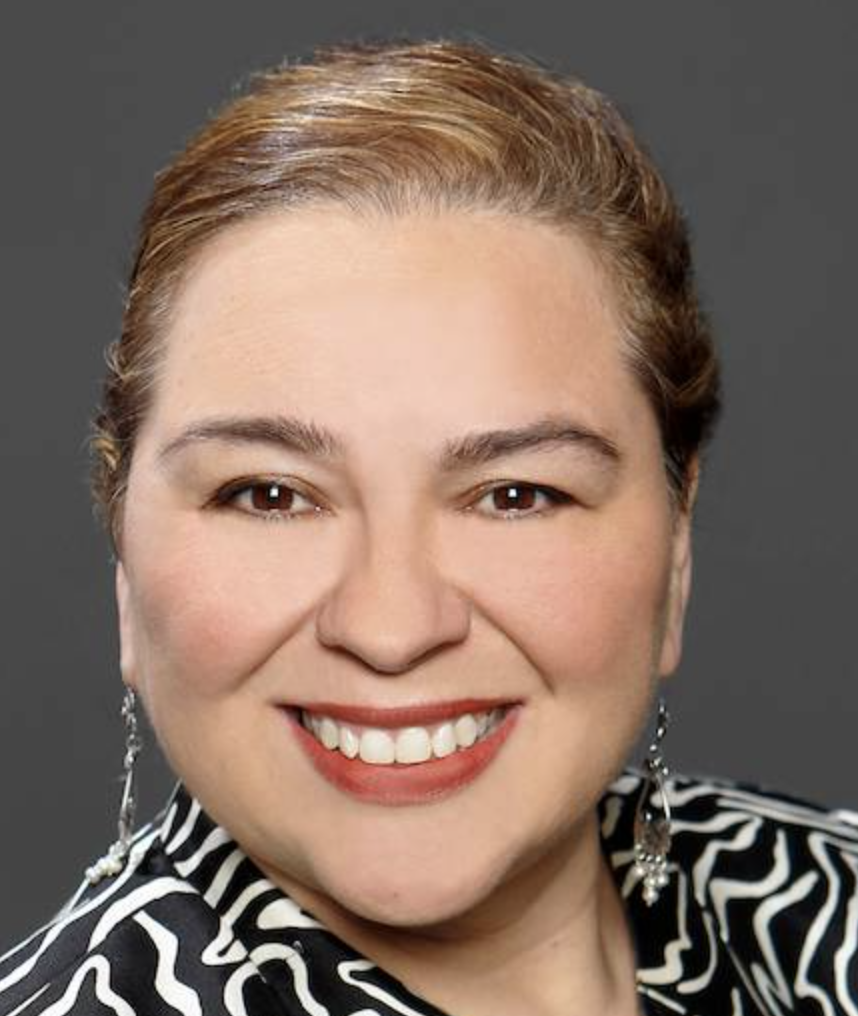
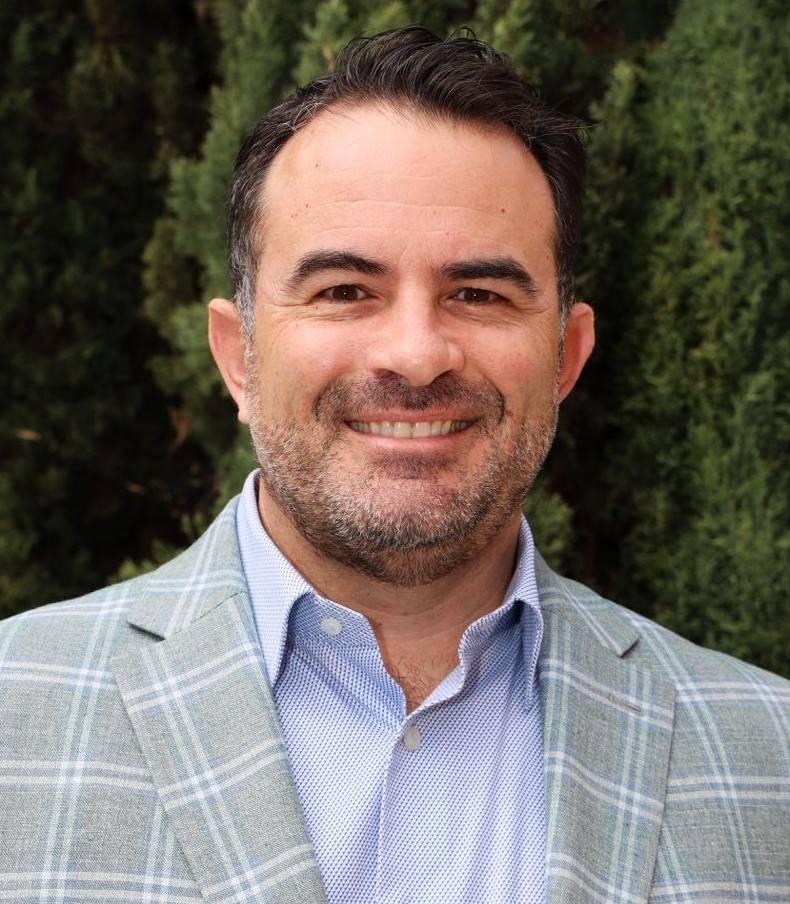
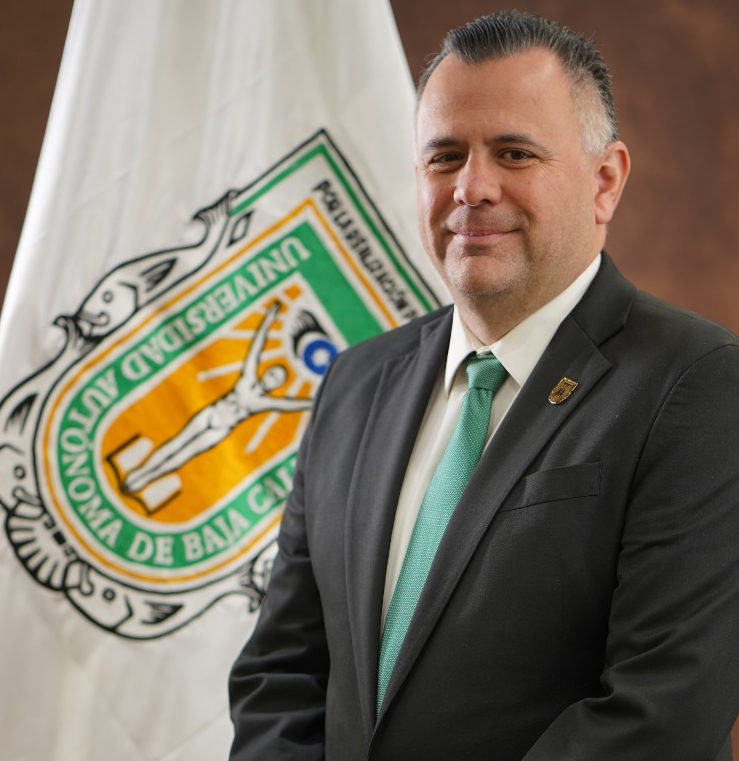
10:15 - 10:30 a.m. Break
10:30- 11:15 a.m. Panel Session
Energy Sustainability
Location: Facultad de Enfermeria, Room 306 (second floor)
Description: In the context of a climate crisis, the 5Rs -- Reduce, Reuse, Recycle, Repair, and Redesign -- offer a roadmap for sustainable change. This session explores innovative binational strategies in the Cali-Baja region to strengthen reuse systems, reduce environmental impact, and empower communities through education and collaboration. The panel will highlight examples, sustainability tools, grassroots initiatives, and technologies that promote reuse while examining the role of environmental education and local organizations.
Descripción: En el contexto de una crisis climática, las 5R (Reducir, Reutilizar, Reciclar, Reparar y Rediseñar) ofrecen una hoja de ruta para un cambio sostenible. Esta sesión explora estrategias binacionales innovadoras en la región Cali-Baja para fortalecer los sistemas de reutilización, reducir el impacto ambiental y empoderar a las comunidades mediante la educación y la colaboración. El panel destacará ejemplos, herramientas de sostenibilidad, iniciativas comunitarias y tecnologías que promueven la reutilización, a la vez que examina el papel de la educación ambiental y las organizaciones locales.
Presenters:
- Avecita Jones: Senior Program Manager, City of Carlsbad
- Manuel Medrano: Environmental Services Manager, City of Chula Vista
Languages: English and Spanish
Binational Higher Education
Location: Facultad de Enfermeria, Room 301
Description: Over the past year, SDSU and UABC have been collaborating on initiatives to promote international and intercultural experiences among our students and faculty. With this in mind, this session will feature three faculty members from both sides of the border. They will share their experiences incorporating COIL (Collaborative International Online Learning) into their classes, discussing how this course design has improved education and enriched their students learning experience. and allowed for a sustainable way of building a shared community between college students across the border.
Descripción: Durante el último año, SDSU y UABC han colaborado en iniciativas para promover experiencias internacionales e interculturales entre nuestros estudiantes y profesores. Con esto en mente, esta sesión contará con la participación de tres profesores de ambos lados de la frontera. Compartirán sus experiencias al incorporar COIL (Aprendizaje Colaborativo Internacional en Línea) en sus clases, y analizarán cómo este diseño de curso ha mejorado la educación y enriquecido la experiencia de aprendizaje de sus estudiantes, además de permitir una forma sostenible de construir una comunidad compartida entre estudiantes universitarios de ambos lados de la frontera.
Presenters:
- Cynthia Ferreiro: SDSU IV Lecturer, Psychology Department
- Kenya Herrera: UABC Professor of Humanidades
- Mei Zhong: SDSU Associate Professor, School of Journalism and Media Studies
- Liliana Vizcarra Noble: SDSU IV Professional Skills Development Center, Research Foundation
Languages: English
Arts, Culture & Wellbeing
Location: Facultad de Enfermeria, Room 302
Descripción: Mexicali y el Valle Imperial son territorios hermanos con historia compartida. Desde sus inicios como ciudades espejo hasta la actualidad, ambas regiones se han caracterizado por el fenómeno de la frontera, fomentando una dinámica propia del territorio, en lo comercial, económico, y el intercambio simbólico de la cultura y las artes.
En este sentido, ambos territorios se enfrentan a la dificultad de la consolidación de la cultura, las instituciones cumplen una función clave ofreciendo de forma unilateral y binacional tanto fomentos como espacios para la promoción artística, iniciativas que buscan fortalecer el campo sociocultural de la región creando un ambiente sostenible para sus comunidades.
Por otro lado los artistas plásticos y visuales, gestores, escritores y músicos han creado un ecosistema independiente al margen de las instituciones, fenómeno que da lugar a una escena donde los artistas buscan construir una trayectoria sólida que les permita profesionalizarse y vivir de su trabajo. En otras palabras, se puede decir que en la región se produce arte por el interés de los propios creadores más que como una actividad económicamente viable, lo cual representa una problemática que pone en riesgo la sostenibilidad del campo.
Contrario a lo esperado, son las iniciativas independientes las que han tenido un impacto más significativo, que les ha permitido a gran parte de los artistas crear una carrera potencialmente viable con relevancia nacional e internacional.
Este panel busca poner en perspectiva el papel que juegan las gestiones independientes y los espacios emergentes como elementos vitales para el mantenimiento del arte en la región, en relación a la historia del arte del mismo territorio, y los desafíos a los que se enfrentan las instituciones en la aplicación de las políticas culturales con el propósito de lograr la generación de una comunidad artística sostenible.
Presenters:
- Alonso Elias: Art Collector
- Luis G. Hernández: MFA in Fine Arts, SDSU
- Alejandro Francisco Espinoza Galindo: Mtro. en Teoría e Historia del arte por la Universidad de Chile - Doctorante en Teoría Crítica por 17, Instituto de Estudios Críticos
- Adrián Pereda Vidal: Ph.D., Arquitectura, urbanismo y diseño
- Héctor Manuel Bázaca López: Mtro. en Artes UABC
Language: Spanish
Binational Higher Education
Location: Facultad de Enfermeria, Room 303
Description: California’s AB 91 program marks a groundbreaking step in expanding educational access and fostering cross-border collaboration between California and Mexico. This session, “Bridging Borders: Expanding Educational Access through California’s AB 91 Binational Program,” will provide an in-depth exploration of the pilot initiative that allows low-income students residing within 45 miles of the California-Mexico border to pay in-state tuition at participating California community colleges.
Attendees will gain a comprehensive understanding of the program’s legislative background, objectives, and implementation strategies. The session will highlight how AB 91 aims to break down financial barriers, promote educational equity, and address workforce needs in the Cali-Baja region. Presenters will share data and early outcomes from the program’s initial cohorts, as well as stories from students whose lives have been transformed by this opportunity.
The discussion will also examine the broader impact of AB 91 on regional economic development, binational cooperation, and community engagement. Panelists will address challenges faced during implementation, best practices, and future directions for expanding the program.
Participants will leave with actionable insights into how cross-border educational initiatives like AB 91 can serve as models for other regions, foster inclusive growth, and strengthen ties between neighboring communities. Join us to discover how innovative policy can create new pathways to success for students and communities on both sides of the border.
Descripción: El programa AB 91 de California marca un paso pionero en la expansión del acceso a la educación y el fomento de la colaboración transfronteriza entre California y México. Esta sesión, "Conectando Fronteras: Ampliando el Acceso a la Educación a través del Programa Binacional AB 91 de California", ofrecerá un análisis a fondo de la iniciativa piloto que permite a los estudiantes de bajos recursos que residen a menos de 72 kilómetros de la frontera entre California y México pagar la matrícula estatal en los colegios comunitarios participantes de California.
Los asistentes comprenderán a fondo los antecedentes legislativos, los objetivos y las estrategias de implementación del programa. La sesión destacará cómo el AB 91 busca eliminar las barreras financieras, promover la equidad educativa y abordar las necesidades de la fuerza laboral en la región de Cali-Baja. Los presentadores compartirán datos y resultados preliminares de las cohortes iniciales del programa, así como historias de estudiantes cuyas vidas han sido transformadas por esta oportunidad.
El debate también examinará el impacto general del AB 91 en el desarrollo económico regional, la cooperación binacional y la participación comunitaria. Los panelistas abordarán los desafíos enfrentados durante la implementación, las mejores prácticas y las futuras direcciones para la expansión del programa.
Los participantes se irán con perspectivas prácticas sobre cómo las iniciativas educativas transfronterizas, como la AB 91, pueden servir de modelo para otras regiones, fomentar el crecimiento inclusivo y fortalecer los vínculos entre las comunidades vecinas. Acompáñenos a descubrir cómo las políticas innovadoras pueden crear nuevas vías de éxito para los estudiantes y las comunidades de ambos lados de la frontera.
Presenters:
- Yara Amparo Lopez: Coordinadora del Program de Educacion Migrante, Secretaria de Educacion Publica de Baja California
- Lilian Garcia: Dean Equity and Special Funded Programs, San Diego Community College District
- Alexis Villa: Vice President of Student Services & Equity, Imperial Valley College
- Mario Lopez: The Border Group
- Joel Pilco: Ph.D., Director of Binational and International Programs, Southwestern College.
Language: English and Spanish
Binational Education: Students We Share
Location: Facultad de Enfermeria, Great Hall of Nursing
Description: In the border context of Baja California, particularly in Mexicali and Tijuana, complex educational scenarios are shaped by human mobility, linguistic diversity, and structural inequalities. This reality imposes multiple challenges on educational institutions, which must respond to the needs of transnational students, migrants in transit, and speakers of diverse languages.
Transnational students who enter secondary schools in Mexico after having spent part of their education in US schools face particular conditions of vulnerability. Their educational inclusion is mediated by language barriers, difficulties in school integration, and identity processes marked by displacement. In the current context of increased hostility toward migrant communities, these young people do not entirely share the profile of the returnees of the recent past, as they arrive with more fragmented educational trajectories and expectations truncated by forced migration.
At the same time, migrant children and adolescents housed in shelters experience limited socio-educational support through informal programs, mostly run by civil society organizations and universities. Some of these families manage to enroll their children in local schools, which requires institutions to provide curricular flexibility, recognize diverse knowledge, and implement welcoming policies.
In this context, linguistic diversity is both a challenge and an opportunity. The presence of speakers of English, Haitian Creole, Chinese, and Spanish highlights the need to transition from a monocultural approach to an intercultural one. Exclusionary practices and linguistic racism must be addressed through pedagogical strategies that recognize and value the plurality of languages as an educational resource, fostering more inclusive, critical, and culturally relevant school environments.
Descripción: En el contexto fronterizo de Baja California, particularmente en Mexicali y en Tijuana, se configuran escenarios educativos complejos marcados por la movilidad humana, la diversidad lingüística y las desigualdades estructurales. Esta realidad impone múltiples retos a las instituciones educativas, las cuales deben responder a las necesidades de estudiantes transnacionales, migrantes en tránsito y hablantes de lenguas diversas.
Los estudiantes transnacionales que se integran a secundarias en México, tras haber cursado parte de su trayectoria en escuelas estadounidenses, enfrentan condiciones particulares de vulnerabilidad. Su inclusión educativa se ve mediada por barreras lingüísticas, dificultades de enganche escolar y procesos identitarios marcados por el desarraigo. En el contexto actual de mayor hostilidad hacia las comunidades migrantes, estos jóvenes no comparten del todo el perfil de los retornados del pasado reciente, ya que llegan con trayectorias escolares más fragmentadas y expectativas truncadas por procesos migratorios forzados.
Simultáneamente, las niñeces y adolescencias migrantes alojadas en albergues experimentan una atención socioeducativa limitada a esquemas no formales, en su mayoría gestionados por organizaciones civiles y universidades. Algunas de estas familias logran inscribir a sus hijos e hijas en escuelas locales, lo cual exige a las instituciones flexibilidad curricular, reconocimiento de saberes diversos y políticas de acogida.
En este panorama, la diversidad lingüística es tanto un reto como una oportunidad. La presencia de hablantes de inglés, creole haitiano, chino y español evidencia la necesidad de transitar de un enfoque monocultural a uno intercultural. Las prácticas de exclusión y el racismo lingüístico deben ser atendidos mediante estrategias pedagógicas que reconozcan y valoren la pluralidad de lenguas como recurso educativo, fomentando entornos escolares más inclusivos, críticos y culturalmente relevantes.
Presenters:
- Eunice Vargas Valle: Ph.D., Investigadora del Colegio de la Frontera Norte
- Edmund "Ted" Hamann: Ph.D., Profesor de Enseñanza, Aprendizaje y Formación Docente, Universidad de Nebraska-Lincoln
- Juan Páez Cardenas: Ph.D., Investigador del Instituto de Investigación y Desarrollo Educativo de la UABC
- Porfiria Bustamante de la Cruz: Ph.D., Profesora-investigadora de la Facultad de Pedagogía e Innovación Educativa de la UABC
- Mtro. Jorge Luis Lincon Zavala: UABC
- Moderator: Laura Marcela Rodríguez Benjumea: Ph.D, UABC, Futbol Mas
Language: Spanish and English
11:15 - 11:30 a.m. Break
11:30 a.m. - 1:00 p.m. Poster Presentations
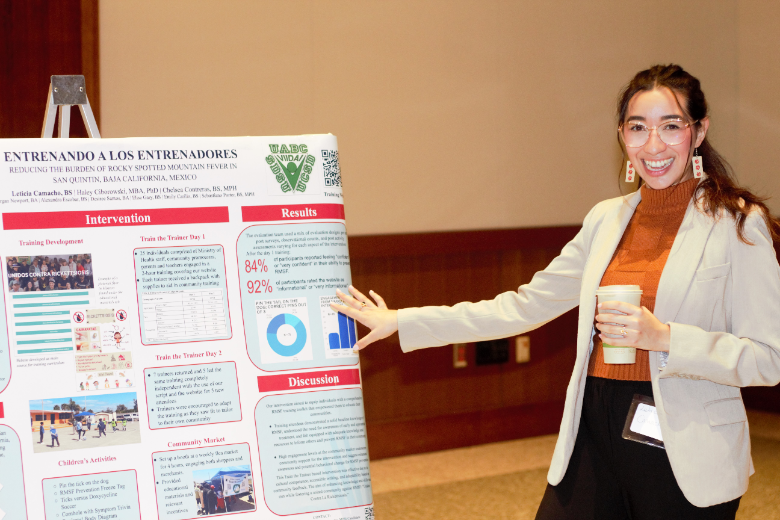 Open the image full screen.
Open the image full screen.
Location: Central Courtyard of the Building of Rectory
______________________________________________________________________
Title: Social and Environmental Innovation for the Ethical Control of Canine and Feline Overpopulation in Urban Areas
Category: Climate & Sustainability Innovations / Innovaciones en Clima y Sostenibilidad
- Olivia Denisse Mejia Victoria, UABC
- Alma Alejandra Soberano Serrano, UABC
- Rodolfo Alan Martínez Rodríguez, UABC
- José Manuel Valencia Moreno, UABC
- Valeria Campa, MX
- Priscila Austin, MX
- Geovana Gómez Llanos, MX
Language: Español & English
______________________________________________________________________
Title: Raíces que Hablan: Evaluación Socioambiental del Agua de Pozo en El Porvenir, Baja California, con un Enfoque Integral
Category: Diseño de soluciones de salud y bienestar
- Mara Patricia López Hernández: Estudiante de Maestría, UABC
- María Evarista Arellano García: Profesora-Investigadora, Facultad de Ciencias UABC
- Dalia Marcela Múñoz Pizza: Profesora-Investigadora, Facultad de Ciencias UABC
- Juana Claudia Leyva Aguilera: Profesora-Investigadora, Facultad de Ciencias UABC
- Olivia Torres Bugarín: Profesora-Investigadora, Facultad de Medicina UAG
Language: Spanish
______________________________________________________________________
Title: Definiendo el problema público de la gestión de residuos sólidos en la cuenca del Río Tijuana
Category: Innovaciones en Clima y Sostenibilidad
- Rafael Ruiz Ortega, Ph.D, UABC
Language: Español & English
______________________________________________________________________
Title: Borderland Voices: Reimagining Early Literacy Through Culture and Language
Category: Human-Centered Design
- Krystina Raymond, Ph.D., SDSU Imperial Valley
- Samantha Burns, Ph.D., University of Guelph
- Lilia Lopez, Ed.D., UABC
Language: English
______________________________________________________________________
Title: Programa de Intervención de Enfermería: Fomento de la Autotrascendencia para Mejorar el Bienestar Psicológico en Personas Universitarias de Mexicali
Category: Diseño de soluciones de salud y bienestar
- Jose Alfredo Pimentel Jaimes, Ph.D., UABC
- Edgar Yaed Jiménez Medina, UABC
Language: Español
______________________________________________________________________
Title: Sustentabilidad en las organizaciones del sector vitivinícola en Valle de Guadalupe, Baja California/Sustainability in the wine industry organizations in Valle de Guadalupe, Baja California
Category: Climate & Sustainability Innovations / Innovaciones en Clima y Sostenibilidad
- Alitzel Bazua Cadena, UABC
- Moisés Hussein Chávez Hernández, UABC
Language: Español & English
______________________________________________________________________
Title: Engaging Youth in Cross-Border Community Service and Cultural Exchange Through STEM, Art, and House Building (3 Posters)
Category: Design, Arts & Culture
- Sebastian Montes, High School Teacher
- Mariela Centrurion, Principal, CWB Academy, Tijuana, Mexico
- Austin Zhang, Del Norte High School
- Ella Huang, Del Norte High School
- Claire Wang, Del Norte High School
Language: English
______________________________________________________________________
Title: Shared Water Resources at the US-Mexico Border: Challenges, Collaborations, and Solutions
Category: Climate & Sustainability Innovations
- Natalie Mladenov, Ph.D., SDSU
- Jorge Ramirez Hernandez, Ph.D., UABC
Language: English
______________________________________________________________________
Title: Agua, Río y Cultura: Percepciones y Necesidades del Pueblo Cucapá frente a los Conflictos Hídricos Binacionales U.S-Mexico
Category: Climate & Sustainability Innovations / Innovaciones en Clima y Sostenibilidad
- Linda Lara Jacobo, Ph.D., Profesora SDSU Imperial Valley
- Daniela Gonzalez, Ph.D., Profesora UABC
- Maria Josse Navarro Ibarra, Ph.D., Profesora UABC
- Maria Luisa Zuñiga, Ph.D., Profesora SDSU
- Benjamin Aceves, Ph.D., Profesor SDSU
- Kai-Chung Cheng, Ph.D., Assistant Profesor SDSU IV
- Nirvana Encinas, student, SDSU Imperial Valley
- Ana Georgina, Diaz, student, UABC
Language: English/Espanol
.______________________________________________________________________
Title: Changing Runoff in a Growing City: Trends and Patterns of Hydrological Change in the Tijuana River Basin (1960–2025)
Category: Climate & Sustainability Innovations
- Napoleon Gudino Elizondo, UABC
- Trent Biggs, SDSU
- Miguel Angel Rodriguez Flores, UABC
Language: English/Espanol
______________________________________________________________________
Title: Monitoreo Hidrológico de la Cuenca Cañón del Matadero/Smugglers Canyon
Category: Climate & Sustainability Innovations
- Miguel Angel Rodríguez Flores, UABC
- Napoleon Gudino Elizondo, UABC
- Waylon Matson, 4WAllsInternational
- Luis Alonso Galindo, UABC
Language: Espanol/English
______________________________________________________________________
Title: Cultural and Structural Barriers and Facilitators to Nutrition Guidance among a Border Community: Insights from Imperial Valley, California
Category: Designing Health & Wellbeing Solutions /Diseño de soluciones de salud y bienestar
- Lucia Canul, doctoral candidate, SDSU
- Benjamin Aceves, Ph.D., SDSU
Language: Español & English
______________________________________________________________________
Title: English and lifestyles at the border
Category: Design, Arts & Culture
- Liliana Lanz Vallejo, Ph.D., UABC
- Alfredo Martínez Alvarado, Ph.D., UABC
Language: English
______________________________________________________________________
Title: Prototypes for Inclusion: Interdisciplinary Design with an Ergonomic Approach
Category: Designing Transformational Education / Diseñando una educación transformacional
- Alejandro Daniel Murga González, UABC
- Adnán Márquez Borbón, UABC
- Daniela Mercedes Martínez Plata, UABC
- Camilo Caraveo Mena, UABC
- Samantha Paulina Jimenez Calleros, UABC
- Tav Abdali Chavez Vergara, UABC
- Dania Valeria Barraza Gómez, UABC
- Litzy Alanisse Cruz Arellano, UABC
Language: Español & English
______________________________________________________________________
Title: Litio en la frontera: retos y oportunidades para la salud pública y gobernanza en Imperial Valley, U.S y Sonora, México
Category: Designing Health & Wellbeing Solutions /Diseño de soluciones de salud y bienestar
- Linda Lara Jacobo, Profesora SDSU Imperial Valley
- Daniela Gonzalez, Profesora, UABC
- Maria Josse Navarro Ibarra, Profesora UABC
- Abraham Flores, SDSU Imperial Valley
Language: Espanol
______________________________________________________________________
Title: Fortalecimiento de la atención institucional ante casos de violencia física y sexual en el ambito hospitalario desde la perspectiva del marco lógico.
Category:Diseño de soluciones de salud y bienestar
- Brittany Noelia Cisneros Somoza, UABC
- Moises Hussein Chavez Hernandez, Ph.D., UABC
Language: Spanish
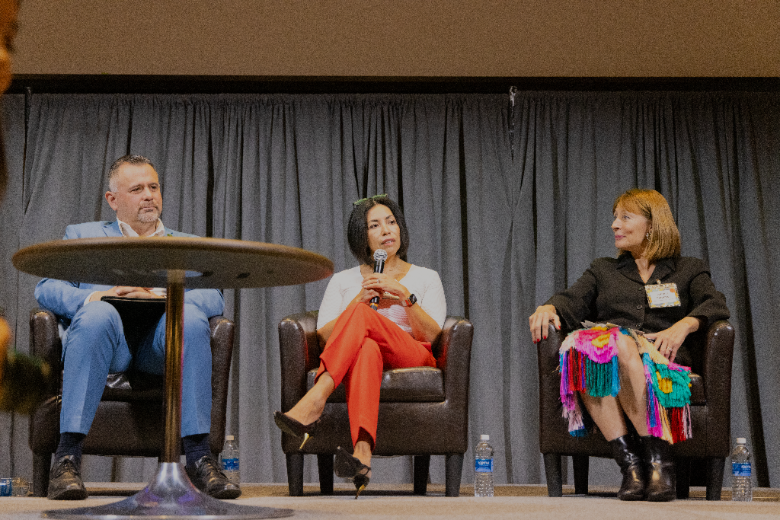 Open the image full screen.
Open the image full screen.______________________________________________________________________
Title: Energetic and biological performance of two green facades in Ensenada B.C.
Category: Climate & Sustainability Innovations / Innovaciones en Clima y Sostenibilidad
- Brianda Yomira Córdova, CICESE,
- Ivett Zavala Guillén, Ph.D., CICESE
- Rodrigo Mendez Alonzo, Ph.D., CICESE
Language: Español & English
______________________________________________________________________
Title: Diseño y evaluación térmica de un material compuesto para enfriamiento pasivo utilizando polímeros reciclado
Category: Innovaciones en Clima y Sostenibilidad
- Erika Andrea Barrero Jiménez, CICESE
- Ivett Zavala Guillén, Ph.D.,CICESE
- Alma Karen González Alcalde, CICESE
Language: Español
______________________________________________________________________
Title: Grupo Binacional BATCH: Binational Alliance for Transborder Community Health
Category: Designing Health & Wellbeing Solutions /Diseño de soluciones d bienestar
- Noe Crespo, Ph.D.,SDSU
- Daniela Gonzalez Valencia, Ph.D., UABC
- María Isabel Ortega Velez, Ph.D., CIAD
- Zahid Garcia, Ph.D. CIAD
- Alva Nidia Laprada Villegas, UABC
- Patricia Dionicio, Ph.D., SDSU
- Bianca Vargas, SDSU,
- Kimberly Sanchez, Ph.D.,UCCM
Language: Español & English
______________________________________________________________________
Title: Conocimientos, Actitudes y Barreras hacia la Vacunación contra el VPH en la Comunidad Cucapá
Category: Diseño de soluciones de salud y bienestar
- Maria Josse Navarro Ibarra, Ph.D., UABC
- Kenia Yerahi Carrillo Borrayo, UABC
- Daniela González Valencia, Ph.D., UABC
- Glenda Diaz Ramírez, Ph.D., UABC
- Linda Lara Jacobo, Ph.D., SDSU
- Christine Valadez, SDSU
- Nirvana Encinas, SDSU
- Michelle Solorio, SDSU
Language: Español
______________________________________________________________________
Title: Diagnóstico de Alimentación y Soberanía Alimentaria en la Comunidad Cucapah
Category: Diseño de soluciones de salud y bienestar
- Daniela Gonzalez Valencia, Profesor, UABC.
- Carlos Emiliano Arteaga Flores, Profesor, UABC
- María Jossé Navarro Ibarra, Ph.D., UABC
- Erika Saenz Pardo Reyes, Ph.D., UABC
- Alissa Martens Gonzalez, SDSU-IV
- Briana Toji, SDSU-IV
- Ofelia Cruz, SDSU-IV
- Miguel Zavala Perez, Ph.D., SDSU-IV
Language: Español
______________________________________________________________________
Title: Situated Technocultures: Enchantment, Creation, and the Pursuit of Sustainability in Media Art and Design
Category: Design, Arts & Culture / Diseño, Arte y Cultura
- Adnan Marquez-Borbon, UABC
Language: Español & English
______________________________________________________________________
Title: Taking on the Heat: Community Needs Assessment of Extreme Heat and UV Exposure in Imperial Valley
Category: Designing Health & Wellbeing Solutions
- Eyal Oren, Ph.D., SDSU
- Miguel Zavala, Ph.D., SDSU
- Luis Torres, CCV
- Carolina Lopez de la Torre, SDSU
Language: English
______________________________________________________________________
Title: Silent Threats Across Borders: Mapping and Detecting Coccidioidomycosis Exposure in Baja California and California
Category: Diseño de soluciones de salud y bienestar
- Nydia Alejandra Castillo-Martínez: Ph.D., UABC
- Ofelia Candofi-Arballo, Ph.D., UABC
- José Román Chávez-Méndez, Ph.D., UABC
- Laura Rosio Castañón-Olivares, Ph.D., UNAM
- Linda Lara Jacobo, Ph.D., SDSU
Language: Español
_____________________________________________________________________
Title: Tripa sana, mente sana
Category: Diseño de soluciones de salud y bienestar
- Karla Maricela Ramírez Ley, UABC
- Yuliana Edna Azcona Cervantes, UABC
- Yissel Aurora Beltrán Alcalá, UABC
- Fausto Arandas Colindres, UABC
- Yessenia Sarahí Elvira Castro, UABC
- Martha Elena González Martínez, UABC
- Juana Yarely Guzmán Luna, UABC
Language: Español
______________________________________________________________________
Title: Implementation of the 'Mis primeros platillos' Program to Promote Healthy Growth in Infants
Category: Designing Health & Wellbeing Solutions /Diseño de soluciones de salud y bienestar
- Lilia Lorena Vazquez Badillo, UABC
- Miguel Angel Fraga Vallejo, SDSU
- Alhelí Lucía Bremer Aztudillo, MD, Ph.D., UABC
Language: Español & English
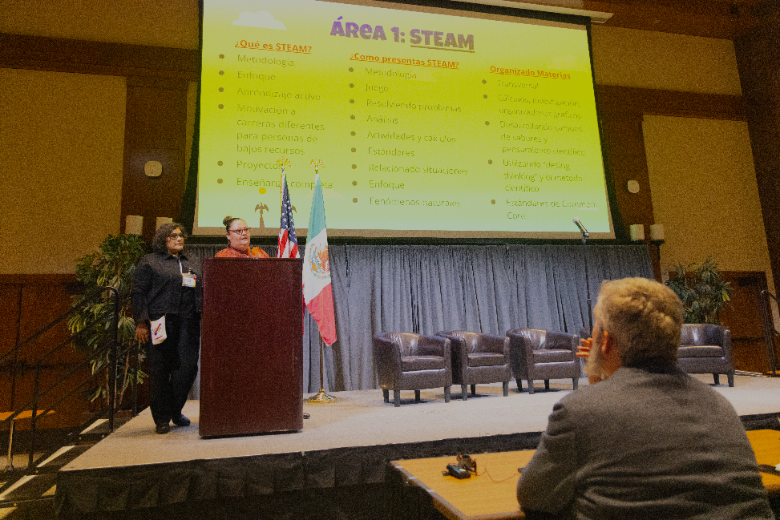 Open the image full screen.
Open the image full screen.______________________________________________________________________
Title: El Derecho a la Ciudad, Observatorio de Vivienda y Suelo Sostenible en la Ciudad Transfronteriza de Tijuana, Baja California.
Category: Planificación y creación de espacios
- Erika Chávez Nungaray, UABC
- Jesús Emilio Hernández Bernal, UABC
- Alonso Hernández Guitrón, UABC
- Julio Torres Coto, UABC
- Angélica Lidia Sauceda Parra, UABC
- Jorge Alberto Pérez Cruz, Universidad Autónoma de Tamaulipas
- Marcela Virginia Santana Juárez, Universidad Autónoma del Estado de México
- Luis García Márquez, Instituto Tecnológico de León
- Abel Chávez García, UABC
- Jennifer López García, UABC
Language: Español
______________________________________________________________________
Title: Estrategia de salud menstrual para infancias menstruantes que transitan albergues migrantes en Tijuana, B.C
Category: Designing Health & Wellbeing Solutions /Diseño de soluciones de salud y bienestar
- Mayra Nohemí Valadez, UABC
- Leonora Arteaga Del Toro, UABC
Language: Español & English
______________________________________________________________________
Title: Diversidad microbiana y resistencia a los antimicrobianos en el río Nuevo: Un desafío transfronterizo a la contaminación del agua
Category: Designing Health & Wellbeing Solutions /Diseño de soluciones de salud y bienestar
- Linda Lara-Jacobo, Ph.D., SDSU
- Abraham Flores, SDSU
- Brandon Toji Ruiz, SDSU
- Nicolas Lopez Galvez, SDSU
- Maria Josse Navarro Ibarra, Ph.D., UABC
- Roman Chavez, UABC
- Nydia Alejandra Castillo-Martínez, Ph.D., UABC
Language: Español & English
_____________________________________________________________________
Title: Structural Barriers in Cancer Care Within the U.S-Mexico Border
Category: Designing Health & Wellbeing Solutions /Diseño de soluciones de salud y bienestar
- Linda Abarbanell, Ph.D., SDSU
- Ana Tolentino, SDSU
- Christine Valadez, SDSU
- Antonio Romo, SDSU
Language: Español & English
______________________________________________________________________
Title: Programa Nutricional para Evaluar la Sostenibilidad de los Hábitos Alimenticios Adaptados a Personas con VIH
Category: Diseño de soluciones de salud y bienestar
- Francisco Javier Corrales Sanchez, UABC
- Daniela González Valencia,Ph.D., UABC,
- Arodi Tizoc Marquez, Ph.D., UABC,
- Carlos Olvera Sandoval, Ph.D., UABC
- Alma Angélica Villa Rueda, Ph.D., UABC
- Diana Reyes Pavón, Ph.D., UABC
- Linda Lara Jacobo, Ph.D., SDSU
- Noe Crespo, Ph.D., SDSU
Language: Español
______________________________________________________________________
Title: Aprendizaje para una Vida Saludable y Sostenible
Category: Diseñando una educación transformacional
- Reyna Isabel Roa Rivera, Ph.D., UABC
- María del Carmen Alcalá Álvarez, Ph.D., UABC
- Icela López Gaspar, Ph.D., UABC
- Claudia Araceli Figueroa Rochin, Ph.D., UABC
- Verónica Guadalupe De la O Burrola, Ph.D., UABC
- Luciano De la Rosa Gutiérrez, Ph.D., UABC
- Alejandra Leonor Salado Iñiguez, Ph.D., UABC
- Raúl Bejarano Romero, Ph.D., UCSD
Language: Español
______________________________________________________________________
Title: Sistema Automatizado de un Invernadero Escolar utilizando Internet de las Cosas
Category: Designing Transformational Education / Diseñando una educación transformacional
- Jesús David Avilés Velázquez, Ph.D, UABC
- María Alejandra Rojas Ruiz, Ph.D., UABC
Language: Español & English
______________________________________________________________________
Title: Robótica de enjambre para aplicaciones de movilidad urbana
Category: Innovaciones en Ciencia y Tecnología
- Luis Moreno-Ahedo, Ph.D., UABC
- Raul Rascon, Ph.D.,UABC
- Karim Licea, UABC
Language: Español
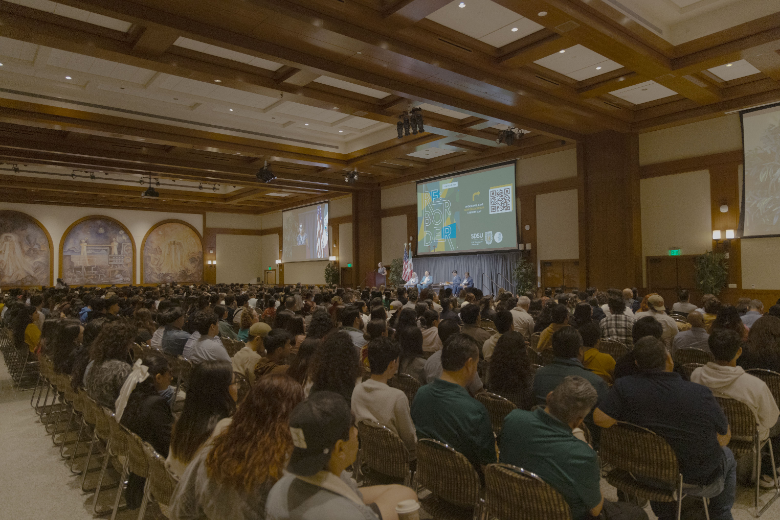 Open the image full screen.
Open the image full screen.______________________________________________________________________
Title: Agua Virtual de México y Estados Unidos (1990-2023)
Category: Innovaciones en Ciencia y Tecnología
- Maria Alejandra Ramos Zazueta. Universidad Autónoma de Baja California
- Belem Dolores Avendaño Ruiz, Ph.D., Universidad Autónoma de Baja California
Language: Español
_____________________________________________________________________
Title: Unidos por la Salud Sexual sin Fronteras
Category: Designing Transformational Education / Diseñando una educación transformacional
- Veronica Ortega Cerda, UABC
- Elvia Peredo Becerra, UABC
- Natalia Hernández Hernández, UABC
- Ian Alexander Garcia Navarro,UABC
Language: Español & English
______________________________________________________________________
Title: Teaching & Learning Beyond Borders: Supporting Multilingual Learners through Inclusive and Innovative Teaching Practices
Category: Designing Transformational Education / Diseñando una educación transformacional
- Vannessa Falcón Orta, Ph.D., SDSU
- Weichen Zhao, Ph.D., SDSU
- Viridiana Limón Salazar, Ph.D.
- Marco Arellano, School Principal
Language: Español & English
______________________________________________________________________
Title: Silver Nanoparticles and Genomic Instability: A Borderland Perspective on Metabolic Syndrome and Molecular Risk
Category: Science & Technology Innovations / Innovaciones en Ciencia y Tecnología
- Maria Evarista Arellano Garcia, Ph.D., UABC
- Alberto Blanco Salazar, Ph.D., UABC
- Balam Ruiz Ruiz, Ph.D., UABC
Language: Español & English
_____________________________________________________________________
Title: La Caja sanar con arte: Modelo de Negocio Social para el apoyo en los procesos atencionales y motivación de juventudes universitarias.
Category: Diseño, Arte y Cultura
- Yadira Zulith Flores Anaya, Ph.D., UABC
- Isis Arlene Díaz Carrión, Ph.D., UABC
Language: Español
______________________________________________________________________
Title: Explora tu nutrizona
Category: Diseño de soluciones de salud y bienestar
- Yajaira Itze Aguirre Sosa, UABC
- Pamela Danaly Alfaro Rebelin, UABC
- Britany Arenas Castillo, UABC
- Cecilia Alexandra González Elizalde, UABC
- Dulce Lizeth Muñiz Salazar, UABC
- Estela Aurora Paz Marín, UABC
Language: Español
_____________________________________________________________________
Title: Intervención comunitaria para el uso de métodos anticonceptivos en adolescentes rurales de Mexicali, Baja California
Category: Diseño de soluciones de salud y bienestar
- Yessica Michel Silva-Godoy, UABC
- Alma Angélica Villa-Rueda, Ph.D., UABC
Language: Español
______________________________________________________________________
Title: Impacto epidemiológico de las partículas PM 2.5 en la salud respiratoria, cardiovascular y la mortalidad en poblaciones urbanas: un estudio en Mexicali, Baja California
Category: Designing Transformational Education / Diseñando una educación transformacional
- Isadora Clark Ordóñez, Ph.D., UABC
- Ernesto Zarate Aldrete, Ph.D., UABC
Language: Español & English
______________________________________________________________________
Title: Investigación Participativa Basada en la Comunidad enfocada en Comunidades Vulnerables
Category: Diseño de soluciones de salud y bienestar
- Abel Dario Martinez Esquivel, Ph.D., en Salud Pública, UABC
Language: Español
______________________________________________________________________
Title: Oportunidades de Educación Transfronteriza "Juntos Aquí y Allá"
Category: Diseñando una educación transformacional
- Claudia Sobrado, Professor Asesor, UABC
- Briseida Osorio Olvera, Líder de equipo de estudiante, UABC
- Priscila Jimenez Aviles, Coordinadora de focus group
- Luis Ronaldo Zamudio, Coordinador de informacion
- Daniela Ontiveros Guirado, Coordinadora de Diseño
Language: Español
_____________________________________________________________________
Title: Mapeando la Educación Superior en la Región Cali-Baja: voces transfronterizas para comunidades sostenibles
Category: Designing Transformational Education / Diseñando una educación transformacional
- Darlene Gonzalez Miy, UABC, Investigadora posdoctoral
- Julia Elvia Chavez Remigio, Instituto Tecnológico de Ensenada, Jefa de la Oficina de Promoción Cultural, investigación, México
Language: Español & English
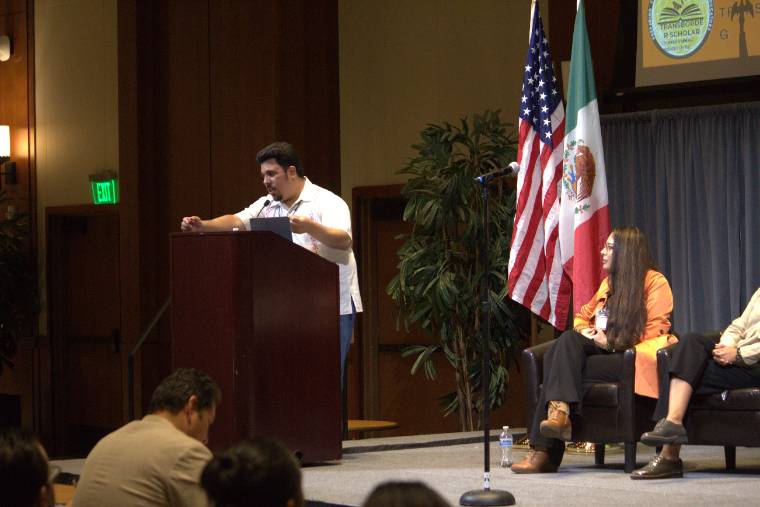 Open the image full screen.
Open the image full screen.______________________________________________________________________
Title: Drugs and Cancer in Imperial Valley
Category: Designing Health & Wellbeing Solutions
- Linda Abarbanell, Ph.D., SDSU Imperial Valley
- Byran Alexander, SDSU Imperial Valley
Language: English
______________________________________________________________________
Title: Inclusión de jóvenes migrantes haitianos en la educación superior en Baja California
Category: Designing Transformational Education / Diseñando una educación transformacional
- Adriana Teresa Moreno Gutiérrez, Profesora de asignatura de UABC, Facultad de Ciencias Sociales y Políticas
- Kenia Maria Ramirez Meda, Ph.D., Coordinadora del Programa Educativo, UABC
Language: Español & English
______________________________________________________________________
Title: Análisis del Consumo de Agua Residencial y Estrategias de Conservación en Áreas Urbanas: Implicaciones para Gestión Sostenible del Agua en Baja California
Category: Climate & Sustainability Innovations / Innovaciones en Clima y Sostenibilidad
- Luis Ramón Moreno Moreno, UABC
Language: Español
______________________________________________________________________
Title: Rediseño de ruta de transporte público utilizando un sistema multi-agente, caso de estudio: Ensenada, México”
Category: Climate & Sustainability Innovations / Innovaciones en Clima y Sostenibilidad
- Tomás de Jesús Arce Manríquez, Facultad de arquitectura y diseno, UABC, Ensenada
- Almendra Villela y Mendoza, Facultad de arquitectura y diseno, UABC, Ensenada
- Alejandro Sánchez Atondo, Facultad de arquitectura y diseo, UABC, Mexicali
Language: Español & English
___________________________________________
Title: Catálogo: “¿Y qué compro? Compra bien, come mejor”
Category: Diseño de soluciones de salud y bienestar
- Alejandra López Álvarez, UABC
- Bianca Yessenia Córdova Valadez, UABC
- Guillermo Rodríguez García, UABC
- Ariadna Santiago Hernández, UABC
- Erika López Ramírez, UABC
- Moisés Abraham Arredondo Jiménez, UABC
Language: Español
______________________________________________________________________
Title: Cytotoxicity and Genotoxicity Evaluation of the Humanized Monoclonal Antibody Trastuzumab in Human Peripheral Blood Lymphocytes
Category: Designing Health & Wellbeing Solutions /Diseño de soluciones de salud y bienestar
- Estrella Azalia Nuñez-Zarco, UABC
- Maria Evarista Arellano-García, Ph.D., UABC
- Balam Ruiz-Ruiz, Ph.D., UABC
Language: Español & English
______________________________________________________________________
Title: Maestría en Educación Transfronteriza
Category: Binational Education
- Javier Gonzales Monroy
- Norma Bocanegra Gastelum
- Francisco Javier Oviedo Villavicencio
- Juan Gabriel López Ochoa
- Rogelio Arenas Monreal
- Zaira Vanessa Valdespino
- Glenda Gastelum Delgado
- Rosaura Guerrero Molina
Language: Spanish
______________________________________________________________________
Title: Huertos Urbanos Y Familiares en la Cuidad de Tijuana
Category: Designing Health & Wellbeing Solutions /Diseño de soluciones de salud y bienestar
- Martha Rosales Aguilar, UABC
- Maria de los Remedios Sánchez Díaz, UABC
- Karla Yanuen Guzmán Carrillo, UABC
Language: Espanol
______________________________________________________________________
Title: Narrar desde la frontera: experiencias del documental “Ser Fronterizo” en procesos de investigación y divulgación
Category: Design, Arts & Culture / Diseño, Arte y Cultura
- Raúl Azviaury Hernández, UABC
- Abel Acosta Prado, UABC
- Bernardo Navarro González, UABC
- Erika Chávez Nungaray, Ph.D., UABC
- Mayra Huerta Jiménez, Ph.D., UABC
- Ana Luisa Ramírez Soto, Profesora, UABC
- Hugo José Regalado Jacobo, Profesor, UABC
Language: English/Spanish
______________________________________________________________________
Title: Intervenciones transformadoras de estilo de vida en la formación de estudiantes universitarios de áreas de la salud.
Category: Designing Health & Wellbeing Solutions /Diseño de soluciones de salud y bienestar
- Patricia Radilla Chávez, Ph.D., Escuela de Ciencias de la Salud, UABC
- Fabiola Flores Monsivais, Ph.D., Escuela de Ciencias de la Salud, UABC
- Francisco Casillas Figueroa, Ph.D., Escuela de Ciencias de la Salud, UABC
- Balam Ruiz Ruiz, Ph.D., Escuela de Ciencias de la Salud, UABC
- Mtra. Alejandra Loera Gutiérrez, Escuela de Ciencias de la Salud, UABC
- Jorge Castillo Hernández, Ph.D., Escuela de Ciencias de la Salud, UABC
- José Ramón Ruiz Ramírez, Medical Intern, UABC
- Luis Enrique Rodríguez Verduzco, Medical Intern, UABC
- Adda Hernández Muñoz, Medical Intern, UABC
- Melissa Gallegos Bonilla, Escuela de Ciencias de la Salud, UABC
Language: Spanish
.______________________________________________________________________
Title: Community-Driven Enogastronomy: A Path to Sustainable Tourism in San José de la Zorra
Category: Design, Arts & Culture / Diseño, Arte y Cultura
- Mtro. Benjamín Medina Treviño, UABC
- Mtra. Claudia Gabriela Trasviña Durazo, UABC
Language: Spanish/English
___________________________________________
Title: Burning Challenges: Stakeholder Perspectives on Agricultural Burning in the Mexicali Valley
Category: Climate & Sustainability Innovations / Innovaciones en Clima y Sostenibilidad
- Miguel Angel Zavala Perez, Associate Professor, SDSU Imperial Valley
- Judith Ley Garcia, Coordinadora de Investigacion y Posgrado, Instituto de Investigaciones Sociales, UABC
- Linda Lara Jacobo, Assistant Professor, School of Public Health, SDSU Imperial Valley
- Atsushi Nara, Associate Professor, Department of Geography, SDSU
Language: Spanish/English
___________________________________________
Title: Methodology for generating a leaf image database for training and validating grape variety identification models
Category: Science & Technology Innovations / Innovaciones en Ciencia y Tecnología
- Alejandro Castro Renteria, UABC
- Sergio Josué López García, UABC
- Carlos A. Aguilar Avelar, PhD., UABC
- Marcela D. Rodriguez, PhD, UABC
- Alejandro Cabello Pasini, PhD, UABC
Language: English and Spanish
12:00 - 1:30 p.m. Lunch Break
Location: Central Courtyard of the Building of Rectory
1:30 - 2:15 p.m. Panel Session
Lithium Exploration
Location: Facultad de Enfermeria, Room 301
Description: This panel will explore the transformative potential of Lithium Valley, a fast-emerging hub for clean energy, critical mineral recovery, and advanced manufacturing in California’s Imperial Valley. Home to one of the world’s largest sources of lithium and geothermal energy, the region is uniquely positioned to drive the domestic energy transition and support a vertically integrated supply chain for batteries, EVs, and innovation. Panelists will provide an overview of the Lithium Valley Specific Plan and the Programmatic Environmental Impact Report, two forward-looking planning tools that create a clear, predictable path for responsible development. These innovative frameworks provide California with a competitive advantage in attracting investment and scaling a next-generation energy, mineral, and manufacturing ecosystem. The conversation will highlight how regional and state policy, in tandem with infrastructure and permitting innovation, are accelerating development while supporting community-driven economic growth. Panelists will also share how alignment with educational institutions is expanding training pipelines for high-quality jobs in clean energy, engineering, operations, and technology. Additionally, the panel will touch on the opportunity for cross-border collaboration with Mexico, unlocking binational synergies in trade, workforce development, and clean energy deployment. Attendees will gain insight into how Lithium Valley is not only advancing critical supply chains, but also serving as a model for sustainable economic development that supports California’s leadership in the global clean energy economy.
Descripción: Este panel explorará el potencial transformador de Lithium Valley, un centro emergente de energía limpia, recuperación de minerales críticos y manufactura avanzada en el Valle Imperial de California. Hogar de una de las mayores fuentes de litio y energía geotérmica del mundo, la región se encuentra en una posición privilegiada para impulsar la transición energética nacional y respaldar una cadena de suministro integrada verticalmente para baterías, vehículos eléctricos e innovación. Los panelistas ofrecerán una visión general del Plan Específico de Lithium Valley y el Informe de Impacto Ambiental Programático, dos herramientas de planificación con visión de futuro que crean una ruta clara y predecible para el desarrollo responsable. Estos marcos innovadores brindan a California una ventaja competitiva para atraer inversión y escalar un ecosistema energético, mineral y manufacturero de última generación. La conversación destacará cómo las políticas regionales y estatales, en conjunto con la innovación en infraestructura y permisos, están acelerando el desarrollo a la vez que impulsan el crecimiento económico impulsado por la comunidad. Los panelistas también compartirán cómo la colaboración con instituciones educativas está ampliando las oportunidades de capacitación para empleos de alta calidad en energía limpia, ingeniería, operaciones y tecnología. Además, el panel abordará la oportunidad de colaboración transfronteriza con México, impulsando sinergias binacionales en comercio, desarrollo laboral e implementación de energía limpia. Los asistentes comprenderán cómo Lithium Valley no solo impulsa cadenas de suministro cruciales, sino que también sirve como modelo de desarrollo económico sostenible que respalda el liderazgo de California en la economía global de energía limpia.
Presenters:
- Jesus Eduardo Escobar, Supervisor, County of Imperial
- Brian Mooney, RICK Consultant
- Bari Bean: Imperial County Deputy CEO of Natural Resource
Language: English
Binational Education: Students We Share
Location: Facultad de Enfermeria, Great Hall of Nursing
Description: This panel brings together five transborder scholars sharing the publication of their Formadores de Docentes Binacionales (FDB) book, based on a pilot project that brought together scholars from four institutions in San Diego and Baja California to create a transborder partnership with the purpose of developing a binational teacher education curriculum. The binational teacher education team, comprised of faculty from Universidad Pedagógica Nacional, Escuela Normal Fronteriza Tijuana, Benemérita Escuela Normal Estatal en Ensenada, the University of California, San Diego, and San Diego State University, designed and implemented a curriculum focused on serving the binational “students we share,” or those students who have attended both a U.S. and Mexican school at some point in their educational trajectories.
To accomplish this work, team members met monthly at each other’s institutions, with an initial focus on relationship-building and learning about each other’s unique teacher education contexts and K-12 institutions. Then, curriculum development included the co-creation of a Theoretical Framework that aligned the team’s understandings of binational teacher development, as well as a Binational Teacher Profile and an articulation of four dimensions of binational/transnational that mapped onto the framework and informed curricular modules: sociopolitical, sociolinguistic, socioemotional, and sociocultural. These foundational aspects of the project informed the design and implementation of the binational teacher education curriculum, which was piloted during the 2018-2019 academic school year in all of the project institutions.
Their book reports on the phases of the project from inception to curriculum implementation and which include: 1) examining the process and design of the FDB project and binational teacher education curriculum, 2) understanding the affordances and/or constraints that emerged as partners developed a binational partnership, 3) mapping the learning opportunities afforded to teacher candidates within and across institutions as aligned with the four dimensions of binational/transnational education identified by team members, 4) investigating how these opportunities were facilitated by the structure and/or nature of interactions and binational learning spaces, and 5) the similarities and differences in teacher educators’ interpretations of this work and its applicability to their particular institutional and geographic context.
Descripción: Este panel reúne a cinco académicos transfronterizos que comparten la publicación de su libro Formadores de Docentes Binacionales (FDB), basado en un proyecto piloto que reunió a académicos de cuatro instituciones en San Diego y Baja California para crear una alianza transfronteriza con el fin de desarrollar un currículo binacional de formación docente. El equipo binacional de formación docente, compuesto por profesores de la Universidad Pedagógica Nacional, la Escuela Normal Fronteriza Tijuana, la Benemérita Escuela Normal Estatal en Ensenada, la Universidad de California en San Diego y la Universidad Estatal de San Diego, diseñó e implementó un currículo enfocado en atender a los estudiantes binacionales que compartimos, es decir, aquellos que han asistido a escuelas estadounidenses y mexicanas en algún momento de su trayectoria educativa.
Para llevar a cabo este trabajo, los miembros del equipo se reunieron mensualmente en sus respectivas instituciones, con un enfoque inicial en el desarrollo de relaciones y el aprendizaje sobre los contextos únicos de formación docente y las instituciones de educación primaria y secundaria de cada uno. Posteriormente, el desarrollo curricular incluyó la creación conjunta de un Marco Teórico que alineó la comprensión del equipo sobre el desarrollo docente binacional, así como un Perfil Docente Binacional y la articulación de cuatro dimensiones de binacional/transnacional que se integraron en el marco y dieron origen a los módulos curriculares: sociopolítica, sociolingüística, socioemocional y sociocultural. Estos aspectos fundamentales del proyecto orientaron el diseño e implementación del currículo binacional de formación docente, que se puso a prueba durante el año académico 2018-2019 en todas las instituciones del proyecto.
Su libro informa sobre las fases del proyecto desde su inicio hasta la implementación del currículo e incluye: 1) examinar el proceso y diseño del proyecto FDB y el currículo binacional de formación docente, 2) comprender las posibilidades y/o limitaciones que surgieron a medida que los socios desarrollaron una asociación binacional, 3) mapear las oportunidades de aprendizaje brindadas a los candidatos a docentes dentro y entre instituciones en consonancia con las cuatro dimensiones de la educación binacional/transnacional identificadas por los miembros del equipo, 4) investigar cómo estas oportunidades fueron facilitadas por la estructura y/o naturaleza de las interacciones y los espacios de aprendizaje binacionales, y 5) las similitudes y diferencias en las interpretaciones de los formadores de docentes de este trabajo y su aplicabilidad a su contexto institucional y geográfico particular.
Presenters:
- Sera Hernández: Ph.D., Department Chair and Associate Professor, San Diego State University, Dual Language and English Learner Education,
- Daniel Hernández: Ph.D.,Formación, Profesor-Investigador de la Universidad Pedagógica Nacional; Coordinador regional de Doctorado Educativo con Énfasis en la Formación de Profesores
- Saúl I. Maldonado: Ph.D., Associate Professor, San Diego State University, Dual Language and English Learner Education
- Yara Amparo López López: Coordinadora Estatal de Educación Bilingue en Sistema Educativo Estatal de Baja California
- Javier González Monroy: Profesor y Coordinador de la Maestria en Practica Docente e Intervencion Cultural de la Universidad Pedagógica Nacional (UPN)
Language: English and Spanish
Energy Sustainability
Location: Facultad de Enfermeria, Room 302
Descripción: En la región Cali-Baja, los desafíos y oportunidades trascienden la frontera. Aprovechar sus fortalezas en energía renovable, logística, capital humano y capacidad de investigación es clave para la movilidad económica, la resiliencia climática y la prosperidad compartida. Existen industrias que se dedican a la promoción y difusión de las energías renovables, así como proyectos estratégicos de energía solar que colaboran con la Academia, con el objetivo de reducir la pobreza energética.
Una labor binacional desde 2019 se ha gestado desde el Professional Skills Development Center de San Diego State University Imperial Valley y la Facultad de Ingeniería de la Universidad Autónoma de Baja California han desarrollado programas académicos binacionales orientados a las necesidades del Valle Imperial/Mexicali. Estas iniciativas combinan formación técnica y habilidades blandas para fortalecer la sostenibilidad y resiliencia comunitaria.
Entre las experiencias más destacadas se encuentran los cursos “Introduction to Renewable Energy” y “International Professional Development for Engineers through Communication”, de 50 horas en dos semanas, que han mejorado el dominio del inglés en contextos profesionales, promovido competencias interculturales y pensamiento crítico, además de ampliar la comprensión de los retos energéticos y ambientales de la región. Este modelo ha vinculado a jóvenes talentos con oportunidades reales en sostenibilidad, impulsando la innovación aplicada y el intercambio de conocimiento.
El programa estatal California Jobs First demuestra el potencial de la inversión pública para promover equidad, beneficiar comunidades históricamente desatendidas y generar oportunidades económicas sostenibles. Paralelamente, el Plan de Activación de Transporte de Calidad fortalece la infraestructura logística y laboral en consonancia con un crecimiento sostenible.
La colaboración académica entre SDSU, UABC y otras instituciones públicas o privadas son un pilar para alinear formación, industria y políticas públicas, avanzando hacia una economía baja en carbono y posicionando a Cali-Baja como referente de desarrollo inclusivo y resiliente.
Description: In the Cali-Baja region, challenges and opportunities transcend the border. Leveraging its strengths in renewable energy, logistics, human capital, and research capacity is key to economic mobility, climate resilience, and shared prosperity. There are industries dedicated to promoting and disseminating renewable energy, as well as strategic solar energy projects that collaborate with academia, with the goal of reducing energy poverty.
Since 2019, binational efforts have been underway between the Professional Skills Development Center at San Diego State University Imperial Valley and the School of Engineering at the Autonomous University of Baja California. These initiatives have developed binational academic programs geared toward the needs of the Imperial Valley/Mexicali region. These initiatives combine technical training and soft skills to strengthen community sustainability and resilience.
Among the most notable experiences are the 50-hour, two-week "Introduction to Renewable Energy" and "International Professional Development for Engineers through Communication" courses, which have improved English proficiency in professional contexts, promoted intercultural skills and critical thinking, and broadened understanding of the region's energy and environmental challenges. This model has connected young talent with real opportunities in sustainability, driving applied innovation and knowledge exchange.
The California Jobs First state program demonstrates the potential of public investment to promote equity, benefit historically underserved communities, and generate sustainable economic opportunities. In parallel, the Quality Transportation Activation Plan strengthens logistics and labor infrastructure in line with sustainable growth.
Academic collaboration between SDSU, UABC, and other public and private institutions is a cornerstone of aligning education, industry, and public policy, moving toward a low-carbon economy and positioning Cali-Baja as a benchmark for inclusive and resilient development.
Presenters:
- Dr. Marlene Zamora Machado: Ph.D., head of the renewable energy educational program UABC
- José Alejandro Suástegui Macías: Ph.D., head of strategic projects at the Faculty of Engineering UABC
- Humberto Luna: Engineer and Director from SUNET and Vice President of Canacintra Mexicali.
- Paolina Peña Frías: Ph.D., Professional Skills Development Center SDSU Imperial Valley
- Lorna Avila Figueroa: Industry Investment Coordinator/California Jobs First: Southern Border Coalition
Language: Spanish
Sustainable Development
Location: Facultad de Enfermeria, Room 303
Description: This panel aligns with the conference's objectives, exploring key topics such as urban sustainability in border contexts, environmental education, social equity, urban planning, and urban-rural integration. Experiences such as the Laguna México EcoPark in Mexicali will be highlighted, with a focus on the Tijuana-San Diego region.
Descripción: Este panel se alinea con los objetivos de la conferencia, explorando temas clave como la sostenibilidad urbana en contextos fronterizos, la educación ambiental, la equidad social, la planeación urbana y la integración entre lo urbano y lo rural. Se destacarán experiencias como el EcoParque Laguna México en Mexicali, con enfoque en la región Tijuana–San Diego.
Presenters:
- Bertha Nayeli Alcocer Ramirez: Educational program with students from UABC
- Manuel Medrano: Environmental Manager for City of Chula Vista
- Avecita Jones: Senior Program Manager Sustainable Materials Management for City of Carlsbad
- Adolfo Delgado: Director de Comite Binacional Unidos por la Niñez
Language: Spanish
Binational Higher Education
Location: Facultad de Enfermeria, Room 306 (second floor)
Descripción: Este panel abordará experiencias y reflexiones sobre expediciones científicas comunitarias que cruzan fronteras geopolíticas y epistemológicas, enfocándose en la colaboración entre comunidades locales, científicxs, organizaciones sociales e instituciones académicas de México y Estados Unidos. A través de ejemplos situados, se discutirá cómo estas expediciones reconfiguran la producción del conocimiento en territorios compartidos, promoviendo una ciencia más inclusiva, situada y transformadora.
Se destacará la importancia de co-diseñar investigaciones con las comunidades, reconociendo sus saberes, prácticas territoriales y prioridades, así como los desafíos que implicará mantener una academia comprometida con la justicia epistémica y la solidaridad transfronteriza.
Resultados Esperados del Panel
1. Propuesta de un Modelo de Ciencia Colaborativa: Se presentará un enfoque metodológico basado en la co-producción del conocimiento, en el que las comunidades participarán como co-investigadoras, no solo como informantes o beneficiarias.
2. Fortalecimiento de Redes Binacionales:
○ El panel promoverá la creación y consolidación de redes de colaboración entre académicxs, estudiantes, defensorxs del territorio y líderes comunitarixs en la región fronteriza México-Estados Unidos.
3. Reivindicación de Saberes Locales e Indígenas:
○ Se pondrá en valor el conocimiento tradicional y se planteará cómo integrarlo éticamente con enfoques científicos, evitando el extractivismo epistémico.
4. Propuestas de Acción hacia una Academia Solidaria:
○ Se compartirán estrategias concretas para transformar las prácticas institucionales, incluyendo modelos horizontales de enseñanza-investigación y esquemas de financiamiento para proyectos colaborativos.
5. Identificación de Desafíos Ético-políticos:
○ Se explorarán tensiones entre los tiempos académicos y comunitarios, las barreras burocráticas para cruzar conocimientos y fronteras, y la necesidad de políticas públicas que respalden estos esfuerzos binacionales.
Description: This panel will address experiences and reflections on community-based scientific expeditions that cross geopolitical and epistemological borders, focusing on collaboration between local communities, scientists, social organizations, and academic institutions in Mexico and the United States. Through situated examples, we will discuss how these expeditions reshape knowledge production in shared territories, promoting a more inclusive, situated, and transformative science.
We will highlight the importance of co-designing research with communities, recognizing their knowledge, territorial practices, and priorities, as well as the challenges of maintaining an academic community committed to epistemic justice and cross-border solidarity.
Expected Outcomes of the Panel:
1. Proposal for a Collaborative Science Model:
○ A methodological approach based on the co-production of knowledge will be presented, in which communities will participate as co-researchers, not just as informants or beneficiaries.
2. Strengthening Binational Networks:
○ The panel will promote the creation and consolidation of collaborative networks between academics, students, territorial defenders, and community leaders in the Mexico-United States border region.
3. Reclaiming Local and Indigenous Knowledge:
○ Traditional knowledge will be valued and how to ethically integrate it with scientific approaches, avoiding epistemic extractivism, will be discussed.
4. Proposals for Action Toward a Solidarity Academy:
○ Concrete strategies to transform institutional practices will be shared, including horizontal teaching-research models and funding schemes for collaborative projects.
5. Identification of Ethical-Political Challenges:
○ Tensions between academic and community time, bureaucratic barriers to crossing knowledge and borders, and the need for public policies that support these binational efforts will be explored.
Moderator:
- Nicolas Lopez-Galvez: Ph.D., Assistant Professor, Environmental Health, SDSU School of Public Health
Presenters:
- Daniela Gonzalez Valencia: Ph.D., UABC Mexicali
- Maria Josse Navarro Ibarra: Ph.D., UABC Mexicali
- Marco Morales Muñoz: Ph.D., COLEF Mexicali
- Linda Lara Jacobo: Ph.D., SDSU Imperial Valley
Language: Spanish and English
Binational Higher Education
Location: Facultad de Enfermeria, Room 307 (second floor)
Description: The Transborder Scholars Thriving Institute (Transborder Scholars) is a multi-site research community dedicated to implementing critically conscious research and practices through liberatory methodologies centered on the holistic development and social justice of the Transfronterizx community along the U.S.–Mexico borderlands. In this collaborative session, we will present the origins of the Transborder Graduation (Falcón Orta et al., 2025) and the Transborder Graduation in Higher Education Model (Falcón Orta et al., in preparation), based on a photovoice collaborative autoethnographic analysis of our work implementing the inaugural Building Bridges: Transborder Graduation.
The Building Bridges Graduation was first held on May 14, 2022, by the SDSU Imperial Valley Cross-Cultural Center at Casa de la Cultura in Mexicali. This historic ceremony was dedicated to building bridges across the U.S.–Mexico border by providing graduates, whose immediate family members could not cross the border to attend their commencement, with the opportunity to celebrate graduation with their loved ones in Mexico.
We will explore the sustainability of this initiative through a panel of borderlands education leaders from San Diego State University, Imperial Valley College, and Southwestern College, who have supported its expansion across the Cali-Baja Borderlands. We will also share insights and advice from leaders at UABC, who have been key allies and partners in the success of this collaborative effort to build bridges in education at the borderlands. Closing remarks will feature testimonios from Transborder Graduation graduates.
Descripción: El Transborder Scholars Thriving Institute (Transborder Scholars) es una comunidad de investigación multisede dedicada a implementar investigación y prácticas con conciencia crítica mediante metodologías liberadoras centradas en el desarrollo holístico y la justicia social de la comunidad transfronteriza a lo largo de la frontera entre Estados Unidos y México. En esta sesión colaborativa, presentaremos los orígenes de la Graduación Transfronteriza (Falcón Orta et al., 2025) y el Modelo de Graduación Transfronteriza en la Educación Superior (Falcón Orta et al., en preparación), con base en un análisis autoetnográfico colaborativo de fotovoz de nuestro trabajo en la implementación del proyecto inaugural "Construyendo Puentes: Graduación Transfronteriza".
La Graduación Construyendo Puentes se celebró por primera vez el 14 de mayo de 2022 en el Centro Intercultural del Valle Imperial de la SDSU en la Casa de la Cultura de Mexicali. Esta histórica ceremonia se dedicó a tender puentes entre Estados Unidos y México, brindando a los graduados, cuyos familiares directos no pudieron cruzar la frontera para asistir a la ceremonia de graduación, la oportunidad de celebrar su graduación con sus seres queridos en México.
Exploraremos la sostenibilidad de esta iniciativa a través de un panel de líderes educativos de la Universidad Estatal de San Diego, el Imperial Valley College y el Southwestern College, quienes han apoyado su expansión en la frontera entre California y Baja California. También compartiremos perspectivas y consejos de líderes de la UABC, quienes han sido aliados y socios clave en el éxito de este esfuerzo colaborativo para construir puentes en la educación en la frontera. Las palabras de clausura incluirán testimonios de graduados de la Graduación Transfronteriza.
Co-Moderators:
- Vannessa Falcón Orta: Ph.D., Assistant Professor, SDSU-Imperial Valley
- Gilberto Reyes Morgan, Ph.D., candidate, Doctorado en Estudios Socioculturales Instituto de Investigaciones Culturales, UABC
Presenters:
- Miriam Celideth Ungson: MSBA, Director of Student Support Initiatives Division of Student Affairs & Campus Diversity, SDSU
- Joel Pilco: Ed.D., Director of Binational and International Programs, Southwestern College
- Alexis N. Villa: M.Ed., MPA, Vice President of Student Services & Equity
Acting Vice President of Academic Services, Imperial Valley College
Language: English and Spanish
2:15 - 3 p.m. Panel Session
Water Sustainability
Location: Facultad de Enfermeria, Room 301
Description: Water scarcity and quality are defining problems of the US-Mexico border region. Our proposed dual Poster and Collaborative sessions will advance cross border collaboration for finding solutions for water resources challenges. The effort builds on previous and existing collaborative sessions between SDSU and Universities in Mexico, including the Big Idea Water Across Borders, which brought together dozens of researchers from both sides of the border region. The main objectives of this session are to a) have collaborators present on progress made in the projects funded by the Water Across Borders grant in 2023 and b) identify future funding opportunities for ongoing collaboration. The poster session will feature student presentations on various topics funded by the Water Across Borders group, including water quality, water reuse, remote sensing of water quality, mapping wetland response to changing water supplies, irrigation efficiency, and groundwater analysis in the Imperial-Mexicali region. The Collaborative Session will feature the leads of laboratories and Principal Investigators to summarize their groups work more broadly, and a discussion session will identify potential funding opportunities. The key result of the session will be a) a compilation of poster presentations with abstract for each b) a summary of key research findings and research needs across institutions, and 2-3 working groups to write proposals for funded research, including identification of request for proposals.
Descripción: La escasez y la calidad del agua son problemas que definen la región fronteriza entre Estados Unidos y México. Nuestra propuesta de sesiones de pósteres y colaborativas impulsará la colaboración transfronteriza para encontrar soluciones a los desafíos de los recursos hídricos. Esta iniciativa se basa en sesiones de colaboración previas y existentes entre SDSU y universidades mexicanas, incluyendo la Gran Idea Agua a Través de las Fronteras, que reunió a decenas de investigadores de ambos lados de la región fronteriza. Los principales objetivos de esta sesión son a) que los colaboradores presenten los avances de los proyectos financiados por la subvención Agua a Través de las Fronteras en 2023 y b) identificar futuras oportunidades de financiamiento para la colaboración continua. La sesión de pósteres incluirá presentaciones de estudiantes sobre diversos temas financiados por el grupo Agua a Través de las Fronteras, incluyendo calidad del agua, reutilización del agua, teledetección de la calidad del agua, mapeo de la respuesta de los humedales a los cambios en el suministro de agua, eficiencia del riego y análisis de aguas subterráneas en la región Imperial-Mexicali. La sesión colaborativa contará con la participación de los líderes de laboratorios e investigadores principales para resumir el trabajo de sus grupos de forma más amplia, y una sesión de debate identificará posibles oportunidades de financiamiento. El resultado clave de la sesión será a) una compilación de presentaciones en carteles con un resumen de cada una, b) un resumen de los hallazgos de investigación clave y las necesidades de investigación en todas las instituciones, y 2-3 grupos de trabajo para escribir propuestas de investigación financiada, incluida la identificación de solicitudes de propuestas.
Presenters:
- Trent Biggs: Ph.D., Professor, SDSU, co-principal investigator
- Natalie Mladenov: Ph.D., Professor, SDSU, co-principal investigator
- Jorge Ramirez Hernandez: Ph.D., Professor, UABC, Mexico principal investigator
Language: English and Spanish
Binational Higher Education
Location: Facultad de Enfermeria, Room 302
Description: This panel explores the critical intersection of incarceration, deportation, higher education, and workforce development along the Baja California–California border. Drawing on lived experience and binational collaboration, panelists will examine educational barriers and opportunities for formerly incarcerated and deported individuals, highlight emerging transborder partnerships, and propose policy and institutional reforms that support this marginalized population. This panel advances efforts to strengthen post-deportation educational pathways. Discussions will include California Assembly Bill 695 and initiatives supporting educational reintegration and workforce development for deported students in Mexico.
- Panel Objectives:
- Identify key higher education and workforce barriers for deported and formerly incarcerated individuals in Mexico.
- Showcase binational strategies and institutional models fostering access to Mexican higher education.
- Center lived experience as expertise to drive narrative and policy change.
Descripción: Este panel explora la crucial intersección entre el encarcelamiento, la deportación, la educación superior y el desarrollo laboral en la frontera entre Baja California y California. Basándose en la experiencia y la colaboración binacional, los panelistas examinarán las barreras y oportunidades educativas para las personas que han estado encarceladas y deportadas, destacarán las alianzas transfronterizas emergentes y propondrán reformas políticas e institucionales que apoyen a esta población marginada. Este panel promueve iniciativas para fortalecer las trayectorias educativas posteriores a la deportación. Los debates incluirán el Proyecto de Ley 695 de la Asamblea de California y las iniciativas que apoyan la reintegración educativa y el desarrollo laboral de los estudiantes deportados en México.
- Objetivos del panel:
- Identificar las principales barreras a la educación superior y al acceso a la fuerza laboral para las personas deportadas y excarceladas en México.
- Presentar estrategias binacionales y modelos institucionales que fomentan el acceso a la educación superior en México.
- Centrar la experiencia vivida como experticia para impulsar el cambio de narrativas y políticas.
Presenters:
- Danny Murillo, M.A. Ed., Associate Director & Co-Founder, Berkeley Underground Scholars, UC Berkeley
- Joshua Vazquez: Estudiante de Licenciatura en Derecho, Universidad Humanitas
- Kenya Herrera Bórquez: Ph.D., Profesora investigadora, UABC
- Pedro Esteban Gerardo Acosta: M.Ed., Research Coordinator, UVA-Mexicali
- Pricila Raquel Rivas Leon: Binational Deportee Program Coordinator, Al Otro Lado
Language: Spanish and English
Binational Enviornmental Pressures
Location: Facultad de Enfermeria, Room 303
Descripción: Este panel abordará proyectos ambientales transnacionales desarrollados en la región del Valle Imperial y Mexicali, un territorio clave que comparte ecosistemas, recursos naturales y retos ambientales entre México y Estados Unidos. El propósito es analizar cómo estas iniciativas pueden impulsar un modelo de desarrollo regional sostenible que responda tanto a los desafíos ecológicos como a las necesidades sociales y económicas de las comunidades fronterizas.
Se presentarán experiencias binacionales centradas en temas como la calidad del aire, la gestión del agua y la restauración de vegetación nativa, destacando la cooperación técnica y política entre ambos países. Estos proyectos ofrecen ejemplos concretos de cómo enfrentar problemáticas ambientales compartidas desde un enfoque conjunto, más allá de las fronteras geográficas.
El panel reunirá a especialistas, académicos y tomadores de decisiones para evaluar los avances obtenidos, los obstáculos enfrentados y las oportunidades de fortalecer la gestión colaborativa de los recursos naturales. Se enfatizará el papel central de la cooperación ambiental en el bienestar de las comunidades locales, la salud pública y la adaptación al cambio climático.
Además de visibilizar iniciativas exitosas, el panel busca promover un diálogo crítico sobre cómo mejorar la gobernanza ambiental transfronteriza y construir una mayor resiliencia ecológica y social en esta región binacional interdependiente. Esta reflexión resulta especialmente relevante ante los crecientes desafíos ambientales que requieren respuestas coordinadas, innovadoras y sostenidas en el tiempo.
Presenters:
- Carlos Gándara Woongg: Ph.D., UABC, Moderator
- Adriana Margarita Arias Vallejo: Ph.D., Professor, UABC
- Miguel Ángel Zavala: Ph.D., Associate Professor, SDSU-Imperial Valley
- Diana Robinson: Imperial County Planning & Development Services
- Enrique Villegas Ibarra: Sonoran Institute
Language: Spanish
Binational Education: Students We Share
Location: Facultad de Enfermeria, Great Hall of Nursing
Description: The Students We Share: Equity, Inclusion, and Binational Collaboration in Contexts of Mobility. This panel will address the binational relationship between the Baja California Secretariat of Education and the San Diego County Office of Education in serving newcomer and/or mobile students—"the students we share"—highlighting the school inclusion strategies implemented in both educational contexts. The focus will be on the strengths and needs of students, including their cultural and linguistic resources to promote equitable and inclusive education, highlighting the successes achieved, the challenges faced, and the opportunities for collaboration identified by educators on both sides of the border.
Descripción: Este panel abordará la relación binacional entre la Secretaría de Educación de Baja California y la Oficina de Educación del Condado de San Diego en la atención a estudiantes newcomers y/o en situación de movilidad —“los estudiantes que compartimos” (the students we share)—, destacando las estrategias de inclusión escolar implementadas en ambos contextos educativos. El enfoque se centra en las fortalezas y necesidades del alumnado, incluyendo sus recursos culturales y lingüísticos para promover una educación equitativa e inclusiva, resaltando los éxitos alcanzados, los retos enfrentados y las oportunidades de colaboración que identifican los educadores a ambos lados de la frontera.
Moderators:
- Jorge Cuevas-Antillón: District Advisor MEGA (Multilingual Education & Global Achievement) Department
San Diego County Office of Education - Izela Jacobo: Senior Director, Multilingual Education and Global Achievement (MEGA) program, San Diego County Office of Education.
Presenters:
- Mtro. Benito Bujanda Ruiz: Responsable de PROBEM en Tijuana, de la Secretaría de Educación en Baja California
- Mtro. Jose Rogelio Jaimes Valdez: Director de la Escuela Primaria Lic. Gabriel Ramos Millanen la ciudad de Tijuana; Oficina del Departamento de Educación de San Diego
- Sandra Cephas: Coordinadora, San Diego County Office of Education
- Richard Romero: Coordinador, San Diego County Office of Education
- Vivianne PetitFrere: Madre de familia y representante de la comunidad Haitiana,
Escuela Primaria Lic. Gabriel Ramos Millán en Tijuana
Language: Spanish and English
Workforce Development
Location: Facultad de Enfermeria, Room 306 (second floor)
Description: The transition to a clean energy economy presents both opportunities and challenges for the Cali-Baja region, with Imperial Valley emerging as “Lithium Valley.” This transformation offers the promise of sustainable growth but also raises urgent questions about how communities can prepare a skilled workforce to meet rapidly evolving industry needs.
This panel will convene leaders from industry (Energy Source), community colleges (IVC), universities on both sides of the border (SDSU and UABC), and the Imperial County Workforce Development Board to examine how education, training, and industry can align to support the region’s sustainable future.
Panelists will discuss the skills and competencies required for lithium-related careers, the current training resources available in the Imperial Valley and Mexicali, and the critical gaps that must be bridged to ensure an inclusive and well-prepared workforce. Special attention will be given to strategies for binational collaboration, recognizing that effective workforce development solutions must reflect the shared economy, geography, and community of the Cali-Baja region.
By bringing together diverse voices from education, training, and industry, this session will move beyond identifying challenges to highlighting innovative pathways for action. Panelists will showcase examples of emerging programs and cross-sector partnerships that demonstrate how academia and industry can collaborate to cultivate the next generation of skilled workers.
Ultimately, this dialogue will provide valuable insights into how the Cali-Baja region can leverage its unique assets to build sustainable communities through workforce innovation, ensuring that Lithium Valley becomes not only an engine of economic growth, but also a model for equitable opportunity and shared prosperity.
Descripcion: La transición hacia una economía de energía limpia presenta tanto oportunidades como desafíos para la región Cali-Baja, con el Valle Imperial emergiendo como la “Valle del Litio.” Esta transformación ofrece la promesa de un crecimiento sostenible, pero también plantea preguntas urgentes sobre cómo las comunidades pueden preparar una fuerza laboral calificada para satisfacer las necesidades de una industria en rápida evolución.
Este panel reunirá a líderes de la industria (Energy Source), colegios comunitarios (IVC), universidades de ambos lados de la frontera (SDSU y UABC) y la Junta de Desarrollo de la Fuerza Laboral del Condado Imperial para analizar cómo la educación, la capacitación y la industria pueden alinearse para apoyar un futuro sostenible en la región.
Los panelistas discutirán las habilidades y competencias necesarias para carreras relacionadas con el litio, los recursos de capacitación actualmente disponibles en el Valle Imperial y Mexicali, y las brechas críticas que deben cerrarse para garantizar una fuerza laboral inclusiva y bien preparada. Se prestará especial atención a estrategias de colaboración binacional, reconociendo que las soluciones efectivas de desarrollo laboral deben reflejar la economía, geografía y comunidad compartidas de la región Cali-Baja.
Al reunir diversas voces de la educación, la capacitación y la industria, esta sesión irá más allá de identificar desafíos y destacará vías innovadoras para la acción. Los panelistas mostrarán ejemplos de programas emergentes y asociaciones intersectoriales que demuestran cómo la academia y la industria pueden colaborar para cultivar la próxima generación de trabajadores calificados.
En última instancia, este diálogo proporcionará perspectivas valiosas sobre cómo la región Cali-Baja puede aprovechar sus activos únicos para construir comunidades sostenibles mediante la innovación en la fuerza laboral, asegurando que la Valle del Litio se convierta no solo en un motor de crecimiento económico, sino también en un modelo de oportunidades equitativas y prosperidad compartida.
Presenters:
- Priscilla Avendaño López: MPA, Director of Imperial County Workforce & Economic Development
- Guillermina G. Núñez-Mchiri: Ph.D., Dean of San Diego State University Imperial Valley
- Elizabeth Espinoza: M.S., Community Affairs Liaison for Energy Source Minerals
- Efrain Silva: MBA, Dean of Economic and Workforce Development at Imperial Valley College
- Emmanuel Santiago Durazo Romero: Ingeniero Aerospacial Facultad de Ingeniería Universidad Autónoma De Baja California
Language: English and Spanish
Binational Sustainability
Location: Facultad de Enfermeria, Room 307, (second floor)
Descripcion: El objetivo del panel es presentar el trabajo que han desarrollado los integrantes del Grupo Estratégico Cali-Baja, creado en abril de 2023, que congregó inicialmente a 25 actores de organizaciones de los sectores público, privado y social en la región fronteriza de Baja California y California. Este grupo se inscribe en el proyecto de investigación “Fronteras Comparadas”, financiado por CONACYT, ahora SECIHTI, a cargo de académicos de El Colegio de la Frontera Norte, los cuales con apoyo de organizaciones como Smart Border Coalition y One Border invitó a estos actores a reflexionar colectivamente sobre la construcción de una Visión de futuro sustentable y con equidad social para la Región Transfronteriza Cali-Baja. También se trabajó en la identificación de los principales retos y oportunidades de desarrollo en la región.
Por solicitud de los integrantes de la primera reunión, el grupo continuó trabajando y discutiendo sobre el presente y futuro de la región, logrando ampliar sus esfuerzos de colaboración transfronteriza. Hasta la fecha, este esfuerzo ha resultado en seis reuniones amplias con actores de ambos lados de la frontera, ampliando el número de actores y organizaciones involucradas, el desarrollo de varios diagnósticos sobre problemáticas de la región Cali-Baja, la Agenda Compartida Tijuana-San Diego y la conformación de tres grupos de trabajo para analizar aspectos puntuales del Plan de Movilidad Transfronterizo, la Cuenca del Río Tijuana y el T-MEC y el Plan México. Nos interesa compartir nuestra experiencia de trabajo, reflexionar sobre la importancia de la acción colectiva para abordar diversos temas de interés para nuestra compleja región, así como identificar nuevos aliados para este proyecto y fomentar la creación de nuevos grupos de trabajo para abordar problemas específicos de impacto transfronterizo.
Description: The objective of the panel is to present the work developed by the members of the Cali-Baja Strategic Group, created in April 2023, which initially brought together 25 stakeholders from public, private, and social sector organizations in the Baja California-California border region. This group is part of the "Comparative Borders" research project, funded by CONACYT (now SECIHTI), led by academics from El Colegio de la Frontera Norte. With support from organizations such as the Smart Border Coalition and One Border, these stakeholders were invited to collectively reflect on building a sustainable and socially equitable future vision for the Cali-Baja cross-border region. Work was also done to identify the main development challenges and opportunities in the region.
At the request of the members of the first meeting, the group continued working and discussing the present and future of the region, expanding its cross-border collaborative efforts. To date, this effort has resulted in six broad-based meetings with stakeholders from both sides of the border, expanding the number of stakeholders and organizations involved, the development of several diagnostic assessments of problems in the Cali-Baja region, the Tijuana-San Diego Shared Agenda, and the formation of three working groups to analyze specific aspects of the Cross-Border Mobility Plan, the Tijuana River Basin, the USMCA, and Plan Mexico. We are interested in sharing our work experience, reflecting on the importance of collective action to address various issues of interest to our complex region, as well as identifying new allies for this project and encouraging the creation of new working groups to address specific problems with cross-border impact.
Presenters:
- María del Rosio Barajas Escamilla: Ph.D., Professor, El Colegio de la Frontera Norte (COLEF)
- Rodrigo Mendez: Ph.D., Professor, Ensenada Center for Scientific Research and Higher Education (CICESE)
- Delia Castellanos: Ph.D., Proyecto Fronterizo de Educación Ambiental
- Minerva Celaya Tentori: Ph.D., Investigadora independiente
- Erika Chávez Nungaray: Ph.D., Doctora en Ciencias Económicas por la Universidad Autónoma de Baja California, Maestra en Economía Regional
Language: Spanish and English
3:00 - 3:15 p.m. Break
3:15 -4:45 p.m. Think Tank
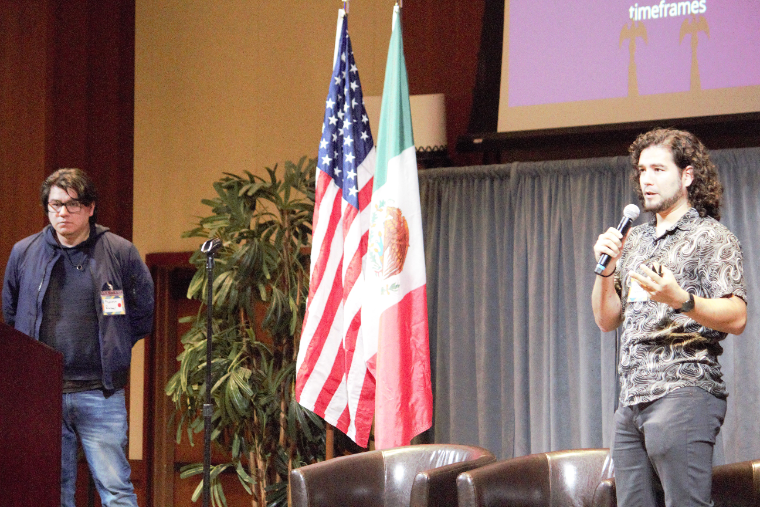 Open the image full screen.
Open the image full screen.
Location: Sala Paraninfo en Rectoria (second floor)
Contestant Proposals:
Pitch 1: Construyendo resiliencia: red de monitoreo ciudadano y acciones climáticas en comunidades fronterizas Mexicali – Calexico.
Building resilience: A network of citizen monitoring and climate action in border communities in Mexicali – Calexico.
Descripción: Mexicali y Calexico experimentan efectos directos del cambio climático, con aumentos significativos en las temperaturas promedio y el número de olas de calor extremas. Como consecuencia, los residentes están expuestos a quemaduras solares, deshidratación y agotamiento por calor. La propuesta, entre otras cosas, busca realizar una evaluación socioambiental en ambas ciudades y construir una red ciudadana de monitoreo de las temperaturas promedio en zonas con mayor vulnerabilidad socioambiental. También explora la implementación de alternativas de resiliencia con soluciones basadas en la naturaleza y ecotecnologías mediante la investigación-acción participativa. Asimismo, explora estrategias educativas en salud ambiental con actores clave. Esto ayudará a los residentes a adquirir habilidades para prevenir riesgos para la salud ante eventos de calor extremo y reducirá las prácticas perjudiciales para el medio ambiente.
Description: Mexicali and Calexico experience direct effects of climate change, with significant increases in average temperatures and the number of extreme heat waves. Consequently, residents are exposed to sunburn, dehydration, and heat exhaustion. The proposal, among other things, seeks to conduct a socio-environmental assessment in both cities and build a citizen monitoring network for average temperatures in areas with higher socio-environmental vulnerability. It also explores implementing resilience alternatives with nature-based solutions and eco-technologies through participatory action research. It also explores environmental health educational strategies with key stakeholders. This will help residents acquire skills to prevent health risks in the face of extreme heat events and will reduce practices harmful to the environment.
Participants/Stakeholders:
- Rosa Elena Parra Tapia: Universidad Autónoma de Baja California. Servicios de Salud IMSS-BIENESTAR Baja California. Principal Investigador.
- Belén León López: Imperial County Air Pollution Control District
- Karina Rivera Fierro: Universidad Autónoma de Baja California, Coordinadora de formación profesional Relación con otros miembros del equipo. representante en México, Educación
- Diego Fernando Ovalle Marroquín: Universidad Autónoma de Baja California, Profesor e Investigador, jefe de Enseñanza e Investigación
- Alberto Mexía Sánchez: Fundación para la Investigación de la Calidad del Aire AC, Director General.
- Astrid Schilmann Halbinger: Instituto Nacional de Salud Pública, Investigadora en Ciencias Médicas
- José Luis Texcalac Sangrador: : Instituto Nacional de Salud Pública, investigador en Ciencias Médicas
_______________________________________________________________________
Pitch 2: Salud en tus manos:
Health in Your Hands
Descripción: Salud en tus manos es una aplicación móvil comunitaria, gamificada e intercultural, co-creada por estudiantes y docentes de UCSD y UABC, diseñada para mejorar el acceso a información y herramientas sobre salud mental y enfermedades infecciosas en poblaciones vulnerables de la región Tijuana–San Diego. La app estará disponible en seis lenguas: español, inglés, mixteco, zapoteco, triqui y náhuatl, e incluirá videos y audios en todos estos idiomas para personas con baja alfabetización.
A través de juegos, trivias, retos de autocuidado y realidad aumentada, los usuarios podrán aprender sobre tuberculosis, VIH, VPH, Hepatitis, Rickettsiosis, Enfermedades de transmisión sexual, ansiedad, depresión y primeros auxilios psicológicos.
Description: Health in Your Hands is a community-based, gamified, and intercultural mobile application, co-created by students and faculty from UCSD and UABC, designed to improve access to information and tools on mental health and infectious diseases among vulnerable populations in the Tijuana-San Diego region. The app will be available in six languages: Spanish, English, Mixtec, Zapotec, Triqui, and Nahuatl, and will include videos and audio in all of these languages for people with low literacy levels. Through games, trivia, self-care challenges, and augmented reality, users will learn about tuberculosis, HIV, HPV, hepatitis, rickettsiosis, sexually transmitted diseases, anxiety, depression, and psychological first aid.
Participants/Stakeholders:
- Raquel Muñiz-Salazar: Profesora-Investigadora, Escuela de Ciencias de la Salud
Universidad Autónoma de Baja California, principal investigador. - Richard Garfein: Professor, Division of Global Public Health, Department of Medicine,
University of California San Diego, principal investigator.
_______________________________________________________________________
Pitch 3: Cross-Border Extension for Resilient Agriculture: A U.S.–Mexico Educational Exchange to Empower Farming Communities.
Extensión transfronteriza para una agricultura resiliente: un intercambio educativo entre Estados Unidos y México para empoderar a las comunidades agrícolas.
Description: This binational initiative aims to strengthen rural livelihoods and build agricultural resilience in Baja California through an innovative extension and education exchange between Virginia Tech, Oregon State University, and Universidad Autónoma de Baja California. In response to declining profitability, limited technical support, and mounting migration pressures, this project proposes a transformative model grounded in U.S. Extension principles and adapted to the unique needs of arid Mexican farming systems.
By fostering relationships between U.S. and Mexican educators, extension agents, and farmers, the program will create a dynamic exchange of knowledge and technology. Core activities include implementation of pilot silvopastoral systems to demonstrate sustainable, profitable alternatives to conventional agriculture.
Descripción: Esta iniciativa binacional busca fortalecer los medios de vida rurales y fomentar la resiliencia agrícola en Baja California mediante un innovador intercambio de extensión y educación entre Virginia Tech, la Universidad Estatal de Oregón y la Universidad Autónoma de Baja California. En respuesta a la disminución de la rentabilidad, la escasez de apoyo técnico y la creciente presión migratoria, este proyecto propone un modelo transformador basado en los principios de la Extensión Universitaria de Estados Unidos y adaptado a las necesidades específicas de los sistemas agrícolas áridos de México.
Al fomentar las relaciones entre educadores, extensionistas y agricultores estadounidenses y mexicanos, el programa creará un intercambio dinámico de conocimientos y tecnología. Las actividades principales incluyen la implementación de sistemas silvopastoriles piloto para demostrar alternativas sostenibles y rentables a la agricultura convencional.
Participants/Stakeholders:
- Jesús Santillano-Cázares: UABC Professor, Principle Investigator.
- John Fike: Professor: Virginia Tech University, U.S. Project´s representative.
- Serkan Ates: Associate Professor of animal science, Oregon State University.
- Ricardo Mata-Gonzalez: Professor Emeritus, Oregon State University.
_______________________________________________________________________
Pitch 4: Transborder Healing: A Collaborative Nursing Initiative to Address Burnout and Foster Well-Being through Healing Touch
Sanación Transfronteriza: Una Iniciativa Colaborativa de Enfermería para Abordar el Agotamiento y Fomentar el Bienestar a través del Healing Touch
Description: This session examines a cross-border collaboration between nursing students from San Diego State University (SDSU) Imperial Valley and Universidad Autónoma de Baja California Mexicali to implement Healing Touch training as a strategy to reduce nursing burnout and enhance well-being in the Imperial and Mexicali Valley. Healing Touch, a heart-centered energy therapy, has been shown to support physical, emotional, mental, and spiritual balance. Developed in the 1970s by nurse Janet Mentgen, Healing Touch draws upon ancestral healing practices and modern medical perspectives on energy fields.
Descripción: Esta sesión explora una colaboración entre estudiantes de enfermería de la Universidad Estatal de San Diego (SDSU) del Valle Imperial y la Universidad Autónoma de Baja California (UABC) Campus Mexicali para implementar un entrenamiento de Healing Touch (Tacto curativo) con el fin de abordar el agotamiento profesional en enfermería y mejorar el bienestar en la región del Valle Imperial y Valle de Mexicali. Healing Touch, una terapia energética centrada en el corazón, ha demostrado equilibrar el bienestar físico, emocional, mental y espiritual. Desarrollado en la década de 1970 por la enfermera Janet Mentgen, Healing Touch se basa en antiguas prácticas curativas y perspectivas médicas modernas sobre los campos de energía.
Participants/Stakeholders:
- Laura Angel-Zavala: Principal Investigator, Lecturer, SDSU Director, New Faculty Success Program- Lecturers and Student of Healing Touch.
- Erika Rodriguez: MSN, RN, CNS, Assistant Director , School of Nursing SDSU Imperial Valley.
- Stephen Jaime: RN, CNS, CCRN, Assistant Professor, School of Nursing SDSU Imperial Valley.
- Leticia Gabriela Rodríguez Pedraza: UABC Mexicali, Directora de la Facultad de Enfermería.
_______________________________________________________________________
Pitch 5: Grupo Binacional CANTRAC: Crossborder Translational Cancer Research Alliance
Coalición Binacional de Investigación Translacional en Cáncer
Descripción: El Grupo Binacional de Investigación Traslacional del Cáncer CANTRAC se creó con la colaboración interinstitucional entre la Universidad Autónoma de Baja California – Mexicali, la Universidad de California (UCSD), Universidad Estatal de San Diego SDSU campus San Diego y SDSU Imperial Valley, y se estableció en enero de 2024. Los objetivos de este grupo son fortalecer y ampliar la investigación binacional del cáncer y las colaboraciones comunitarias para abordar los factores de riesgo del cáncer entre las comunidades marginadas que viven en la región fronteriza; así como desarrollar y fortalecer la infraestructura de investigación que apoya la investigación traslacional a largo plazo en la región fronteriza. Este grupo está formado por investigadores con diversas líneas de investigación como la biomedicina, la nutrición pública y salud, la bioinformática y la toxicología ambiental, la promoción de la salud y las ciencias de implementación. Actualmente se está desarrollando un proyecto “Creación conjunta de una visión común de la investigación transfronteriza traslacional del cáncer”, cuya finalidad es recolectar información de los actores claves para el tratamiento e investigación del cáncer en San Diego, California y Mexicali, Baja California, con la finalidad de compartir información y atender las necesidades de todas las áreas involucradas en el incremento de la incidencia y los factores de riesgo transfronterizos asociados al cáncer.
Description: CANTRAC (Crossborder Translational Cancer Research Alliance) Binational Translational Cancer Research Group was created through an inter-institutional collaboration between the Autonomous University of Baja California Mexicali, the University of California San DIego, San Diego State University and SDSU Imperial Valley. The group's goals are to strengthen and expand binational cancer research and community collaborations to address cancer risk factors among underserved communities living in the border region; as well as to develop and strengthen the research infrastructure that supports long-term translational research in the border region. This group is composed of researchers with diverse research backgrounds such as biomedicine, public nutrition and health, bioinformatics and environmental toxicology, health promotion, and implementation sciences. A project "Co-creating a vision" is currently under development.
Participants/Stakeholders:
- María Jossé Navarro-Ibarra: Profesora-investigadora, Universidad Autónoma de Baja California.
- Melody Karen Schiaffino-Castro: Professor, University of California San Diego.
- Victor Guadalupe García González: Profesor-investigador UABC
- Daniela Guadalupe González Valencia: Profesor-Investigador; UABC
- Carlos Olvera Sandoval: Profesor-investigador, UABC
- Octavio Galindo Hernández: Professor-investigador, UABC
- Linda Lara Jacobo: Assistant Professor, SDSU
- Miguel Zavala-Pérez: Associate Professor, SDSU-
- Noe Crespo:,Professor, SDSU
- Mateo Banegas: investigador, UCSD
_______________________________________________________________________
Pitch 6: Transborder Binational Research and Academic Information Network Collection: Transborder BRAIN
Colección de la Red Transfronteriza Binacional de Investigación e Información Académica: Transborder BRAIN
Description: This initiative, in its pilot phase, seeks to establish a centralized electronic collection, with the objective of gathering and organizing the scientific productivity of diverse institutional entities on transborder subjects. Universidad Autónoma de Baja California and San Diego State University have initiated a collaborative review of the potential for developing a joint collection. This initiative, in addition to promoting and disseminating the knowledge generated in research, represents a critical action in the preservation of the historical memory of the region. Once the collection is fully configured, it is also expected to establish a connection between the data and a map, facilitating the visualization of the region's scientific production.
Descripcion: Esta iniciativa, en su fase piloto, busca establecer una colección electrónica centralizada con el objetivo de recopilar y organizar la producción científica de diversas entidades institucionales sobre temas transfronterizos. Universidad Autónoma de Baja California y la Universidad Estatal de San Diego han iniciado una revisión colaborativa sobre el potencial para desarrollar una colección conjunta. Esta iniciativa, además de promover y difundir el conocimiento generado en la investigación, representa una acción crucial en la preservación de la memoria histórica de la región. Una vez que la colección esté completamente configurada, se espera que establezca una conexión entre los datos y un mapa, facilitando la visualización de la producción científica de la región.
Participants/Stakeholders
- Maria Amor: Latin American Language and Cultures Librarian, Project Leader, SDSU
- Mariana Becerra: Head of the Department of Libraries Services, UABC
_______________________________________________________________________
Pitch 7: Laboratorio Binacional de Enfermedades Infecciosas
Binational Laboratory of Infectious Diseases
Descripción: La franja fronteriza entre México y EUA, especialmente las Californias, comparten retos de salud pública binacional que ponen a prueba las capacidades de atención de los sistemas de salud existentes en ambos países. Dentro de la comunidad binacional existe una co-dependencia de salud pública muy estrecha que ha sido uno de los más grandes retos para el desarrollo integral de su población.
La tuberculosis afecta mayormente a la población binacional entre México-EUA. Las incidencias más altas se encuentran en los estados colindantes, esta enfermedad es considerada endémica en la región binacional. Baja California (México) y California (EUA) cuentan con las incidencias más altas en sus respectivos países.
La integración de un sistema de atención que logre impactar y disminuir la alta incidencia de enfermedades como la tuberculosis entre la población binacional deberá incluir la participación del sector académico, gobierno y las asociaciones no gubernamentales, así como de estrategias de trabajo en equipo innovadoras que permitan un grado de colaboración mayor y mejorado.
La presente propuesta se basa en el desarrollo de una estrategia integral de colaboración académica, a través de la utilización de los recursos universitarios, voluntariado civil, actividades que integren la participación y esfuerzos de la sociedad civil, y directrices gubernamentales, re-diseño de programas de atención binacionales.
La primera acción encaminada al control y la prevención de tuberculosis binacional es la detección de los casos. Proponemos la creación de un laboratorio clínico binacional, organizado y liderado por convenio entre UABC-SDSU a través del compartimiento de recursos existentes.
Description: The border between Mexico and the United States, especially the California borders, share binational public health challenges that test the care capacities of the existing health systems in both countries. Within the binational community, there is a very close public health co-dependence that has been one of the greatest challenges to the comprehensive development of its population. Tuberculosis primarily affects the binational population between Mexico and the United States. The highest incidences are found in the neighboring states; this disease is considered endemic to the binational region. Baja California (Mexico) and California (USA) have the highest incidences in their respective countries.
The integration of a care system that successfully impacts and reduces the high incidence of diseases such as tuberculosis among the binational population must include the participation of the academic sector, government, and non-governmental organizations, as well as innovative teamwork strategies that allow for a greater and improved level of collaboration.
This proposal is based on the development of a comprehensive strategy for academic collaboration, through the use of university resources; civil volunteering; activities that integrate the participation and efforts of civil society; and government guidelines on the redesign of binational care programs.
Participants/Stakeholders:
- Jose Roman Chavez Mendez: ,UABC FACISALUD, coordinador de laboratorio.
- Linda Lara Jacobo:, coordinadora de laboratorio, SDSU.
